






Editor in Chief Buzz Langton
Senior Editors Curt Hugo Wurlitzer & Isabella Langton
Executive Art Directors Buzz Langton / Isabella Langton
Columnists Buzz Langton, Curt Hugo Wurlitzer, Isabella Langton
Photography Editors Buzz Langton & Darren Richardson
Designer Anna Leapman
Intern Nuttaporn Tanawat
Cover Image - Portrait of Clive Saunders (by Buzz Langton)
All text and Images are the copyright of OneCreate © 2024 or the original artists and cannot be reproduced or used without prior consent
EDITORIAL OFFICES + POST PRODUCTION Bangkok - London
EDITORIAL / ADVERTISING INTEREST
CONTACT US AT: INFO@ONECREATE CO
One Create Zine is published by One Create Agency
ONECREATE CO info@onecreate.co
Welcome to One Create Zine, This fourth edition is our Flm and TV industry special edition..
Exclusive Feature - The Bangkok Job Movie
Long form interview with its creator Clive Saunders
Chandos Animation
Frame by Frame Sound inc
Tiger Horse Media
Travel - Thailand [Part 1]
Subscribe to One Create Zine today
Go to - www.onecreate.co to sign up.

Hello and welcome to our fourth edition of One Create Zine.
This issue is an industry special, showcasing ‘The Bangkok Job’ movie, which had it’s recent world premiere screening in Bangkok, soon to be screened in London this coming March.
We had the opportunity to catch up with Clive Saunders before he departed back to the UK.
Clive is a producer, director, actor and writer. We talked about the making of The Bangkok Job and his career to date.
The interview is in long form format, so it captures his story in great detail. It’s open, honest and straight talking, we will leave the rest, as not to spoil it for you.
As this issue is a movie business special, we have some very cool and interesting editorial from professionals working in the industry.
We are sure you’ll enjoy this issue even if you don’t work in TV or the movie business, we all love movies and television..don’t we..
If you’d enjoyed this fourth edition, please do share the link amongst your circle of friends, family and colleagues if you think they would enjoy it too.
Thank you and see you again in our next issue.
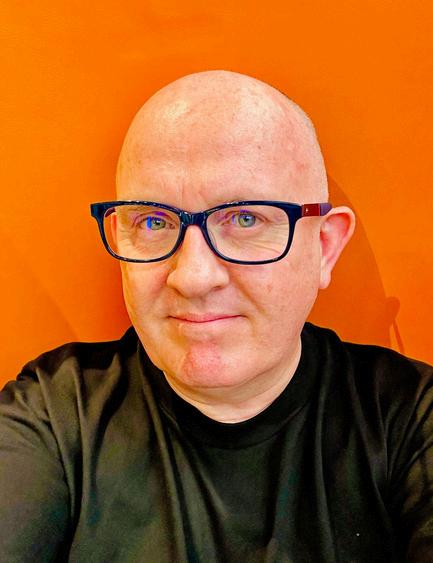 Murray (Buzz) Langton
Murray (Buzz) Langton
For editorial or advertising enquiries please email: info@onecreate.co (not .com)
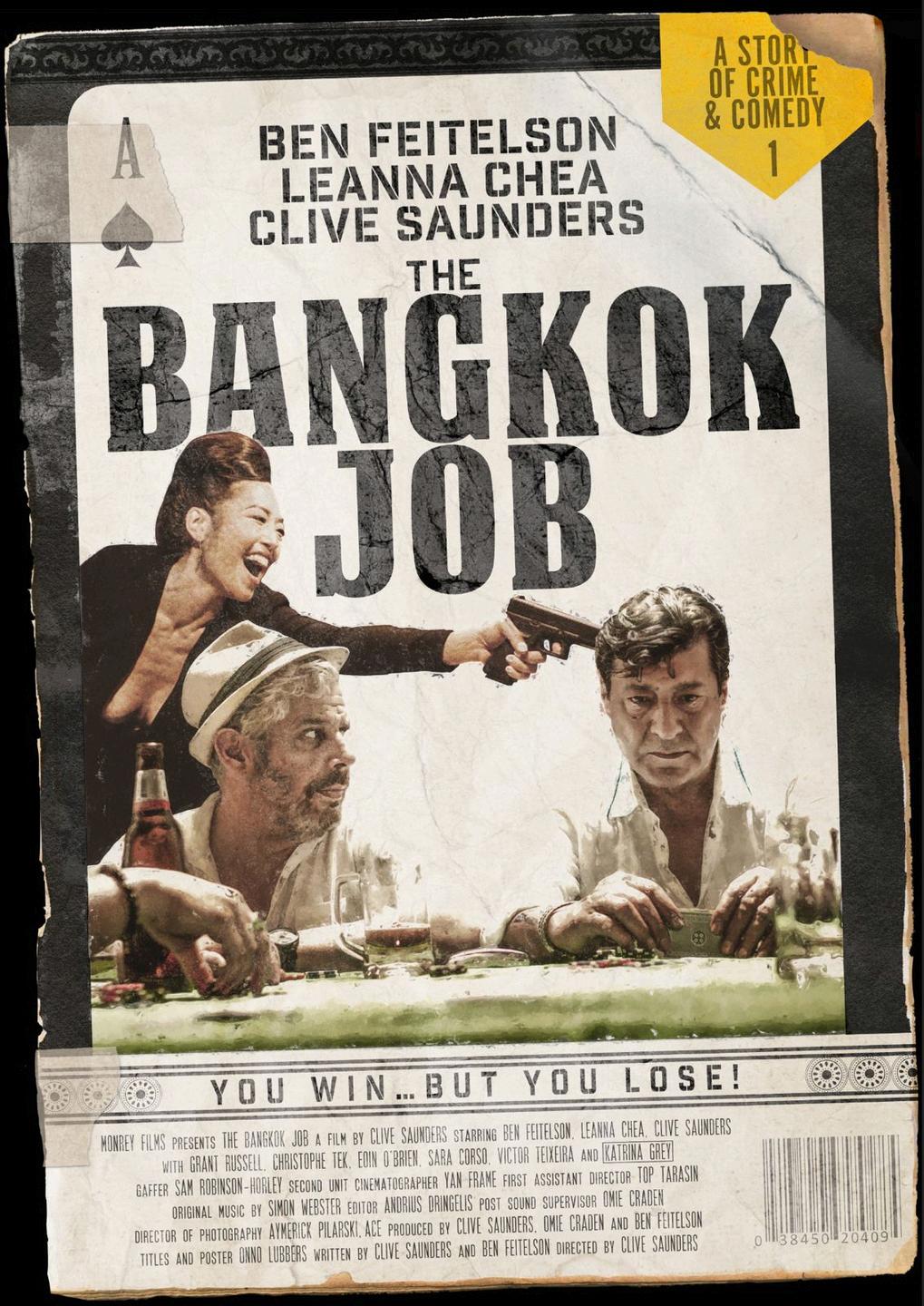
BL- Hi Clive, great to meet you, thanks very much for making the time in your busy schedule for this interview. Please share with everyone just a little bit about yourself, where you were born, where you were brought up, and the intervening years that brought you here today.
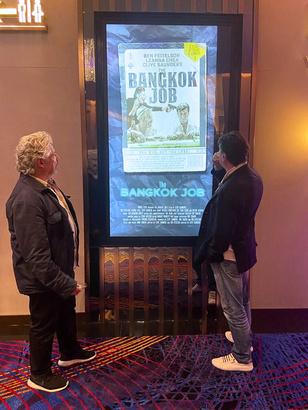
CS - Great to be here in Bangkok Buzz.. Thanks for the opportunity to tell my story.. I was born in London in 1958.
I lived in West Hampstead from my youth, and later I ended up studying at law school.
To be truthful, I wasn't really ever sure what I wanted to be.
And then it all changed. Because one day I met Anna Strasberg (wife of Lee Strasberg) when I was working as an estate agent in Holland Park..
To cut a long story short, I was driving her around, showing her properties, as at that time she was thinking of relocating her acting school to London. She gave me a scholarship because I did a lot of, you know, schlepping, driving her around..
She saw I was really interested in her husband's work, and in order to keep me searching high and low, she told me I was a really good actor, and had I ever considered a career in.. yada yada yada, and offered me a scholarship rather than pay the company I was working for a retention fee. No skin off her nose, right! That's how it started..

And then one day I was made redundant when I was working for another estate agency company. So I took that as a sign, I took my severance check, and I flew out to Los Angeles.
I thought at that age, I am going to be an actor. I think I was around 30, that's when I started morphing into an actor..
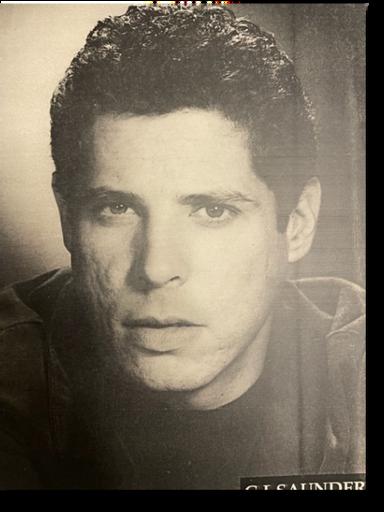
BL - You returned to the UK to continue your new found profession.. What happened next?
CS - So I came back to the UK. And then went to Jack Waltzer workshops in London, City Lit improv classes, that sort of thing. That led to fringe plays in London, you know, the usual stuff, like True West by Sam Shepard.
And then what I did was, I adapted four short stories of *’Charles Bukowski’, the American writer, and I put that on in a fringe venue in London.
BL - How was that received?
CS - Well it was a surprise to me..
It transferred, it just rolled, it just went from place to place. I never made much money, but it was quite hardcore. Obviously I couldn't do it these days.
But it was Bukowski! And it was in the 90s..And that took me back to Los Angeles; where I was trying to trace Bukowski’s widow, to get the rights, a quest that went on quite a long time.
Eventually she came up, I had to mount the play there in LA to convince her.
She gave me the rights, which was a massive relief after all the hard work.
She said, well, “I don't want you to do four short stories”
“Why don't you do one first as a film?”
That was my first film. It was a 25 minute adaptation of a *‘Charles Bukowski’ story called ‘Love for $17.50’.
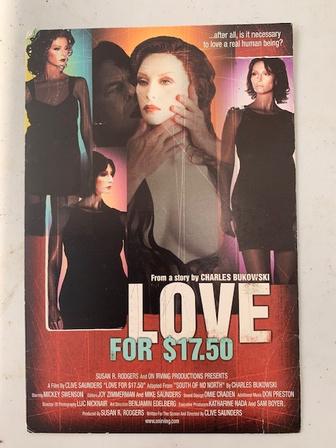
But, it got me a feature film as a director in LA, in Hollywood, which was a serial killer film called ‘Gacy’, about ‘John Wayne Gacy’ (Infamous American Serial Killer). they cut the story I was trying to tell into shreds!
So I tried to get my name removed... However, it got worldwide distribution.
But it wasn't what I wanted to do.
I was basically into independent film and comedy, dark comedy.
I didn't want to make horror. Horror was abhorrent to me.
I didn't like it. I don't watch it. I didn't know how to make it.
So I'm just trying to make a psychological drama. Finally I was kicked out of the edit room, halfway through the edit. However, I kept the director's credit for some reason. But that was in 2003.
So after that, I came home to London, and I didn't know what to do. I was a bit lost, then I started writing again, getting back into the saddle.
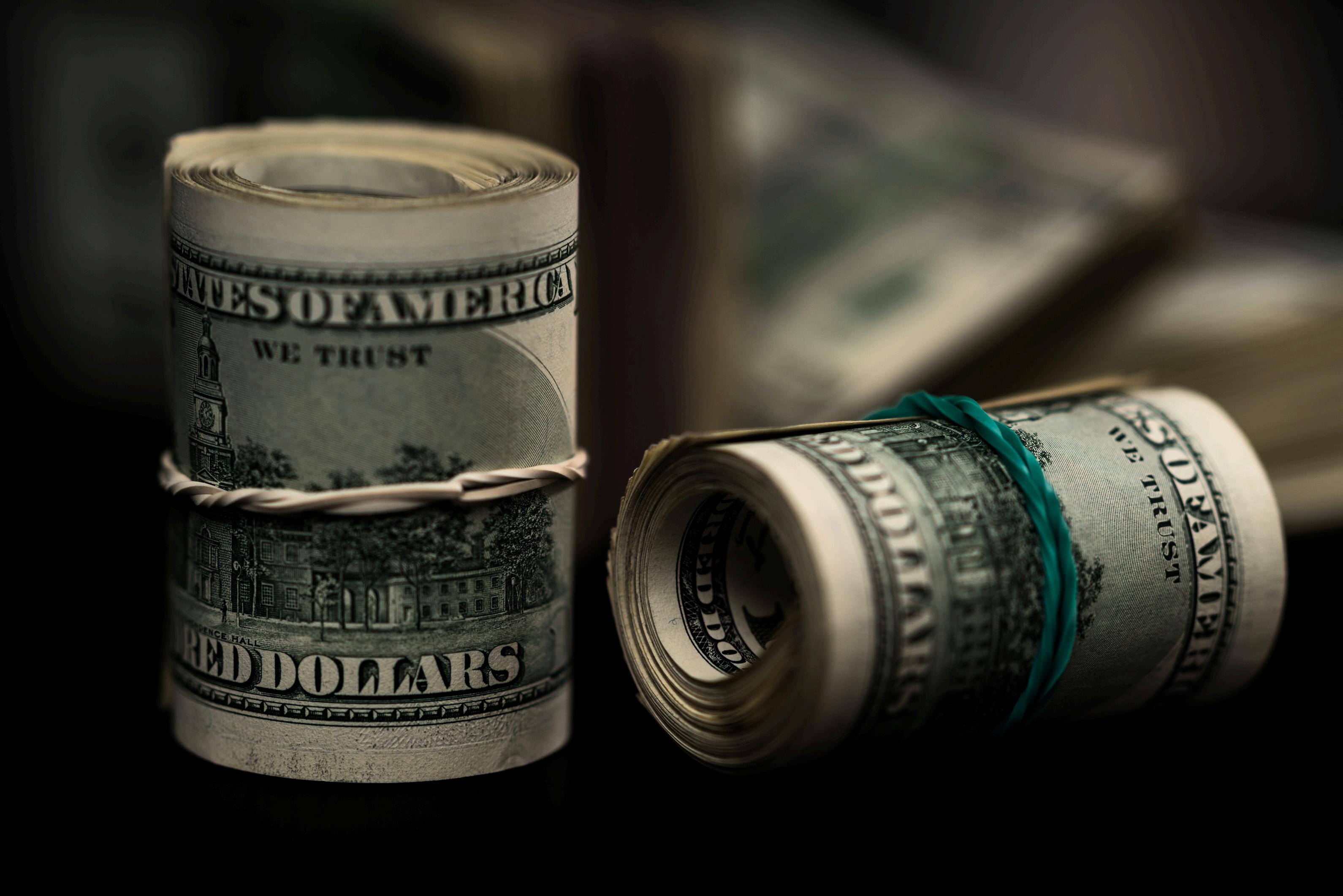

BL - Clive, tell us, where did your idea for the Bangkok job come from?
CS - A friend of mine, Clifford, my best friend in fact who's since passed away, met a Thai lady in Uxbridge, West London, funnily enough that's irrelevant, and he had always been asking me and my friend John what was Thailand like, as we'd been coming to Thailand since the early 2000's, so I guess this must have been around 2007/8
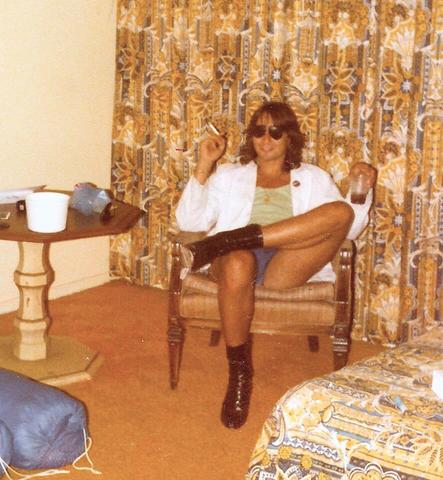
Let me explain a little about my friend Cliff. He was one of those guys, he was like, tell me, what happened to you out there? You know, what's it like out there? But he would never go himself. Tell me about the lady boys, tell me about this and that, but you know, he'd just seen the cliches on TV or in newspapers..yeah, basically all the cliches right!
Yeah Cliff, I said “it's not like that, obviously there are areas like that, but the reality is, it's a really complex and varied cultural country, amazing culture, a mixture of all sorts of things.. You've really got to go there”.
So eventually he met this Thai woman, and then he went out and lived in Krabi (Coastal town in the South of Thailand which is known for its very beautiful natural surroundings).
So I would go there to visit him, and I was happy, because he became very happy living there.
He'd like to smoke his weed, and do his thing. He was with a good woman, a really nice woman called ‘Tuk Tuk’, that was her nickname.
I would sit there, and I watched them interact, right, and he was talking to her like she was an infant, I was just pissing myself, I thought this has got to be done as a film, but not in a kind of ‘Little Britain’ (UK TV Sketch Comedy Show) ‘tingtong’ way. (ting-tong - colloquial Thai phrase for a bit silly or crazy).
So I always found it very, you know, demeaning! I just thought, well one day I'd like to get around to using that as some kind of insert. I didn't know I was going to 'base' a film around it - ‘Frank’ and 'Happy’. (lead character and his Thai wife).
CLIFFORD-‘CLIFF’
So there I was, in Jack Waltzer's Paris workshop...where I met Ben (Feitelson). We were always paired up together because we were the oldest in the room.
So you know, the old boys can get out there and have a bash, and we cracked people up.
I found a really good foil that I could really unload on, Ben was that funny guy.. You know, you see what he's like, he's a very punchable man.. Haha just joking Ben!
And then, Ben’s mum died. I was very friendly with Ben, he lives in Geneva. His mother, a famous actress called ‘Mony Rey’ died, and Ben was bereft. (the film was dedicated to Mona Rey).
So I phoned him up, and I said, “I'm going to Thailand, come on let's go out there”, I think he'd never been there before either, just to get him over it.. Because he was moping.
We were good mates then, and so I took him, and we came out to Thailand, and we had a lot of stupid adventures.
He said, “wow this film is writing itself”.
Whilst we were there, we met this Latvian, a guy called Yan, who was a cameraman, a very good cameraman as it turned out, he was fearless!
So we shot the trailer, he's a good guerrilla type cameraman; filmmaking where you are stealing shots, even so with location approvals, we can get shaken down and ripped off, not that you're not going the other way, but it's a waste of time and money in a lot of places.
If you can get permission, great! Because you do need to show location release forms at the end of it all..
But Yan was that kind of guy, you know, that thing when I'm driving on the bike through the streets, he was on the back, literally standing up on the back going down Soi 24 I think it was, you know, literally holding a camera up there, and I'm holding one leg like that, (shows a headlock type grip) holding him on.
I looked up at one point, I thought this is madness. I'm a 60 year old man, I don't need this shit, but when we got back and we saw his shots - Oh my god! The immediacy!
You don't see that in films, the real Bangkok back streets, penetrating into the rabbit warren of streets, you know they go from dark to incredibly dark, it could be midday, but it's so dense.. I thought we've got to get into the real Bangkok.
Because I knew Yan could do that, I couldn't think of any other cameraman who could do that, you just want to show how oppressive those back streets could be right, and atmospheric and moody and smelly; I wanted to smell the streets, and he's the kind of guy who could do that with his photography. He’d just say “let's go, go man!” you know he was one of those. Great with drones too.. He did all the drone stuff.

Also if I didn't have Aymerick Pilarski, a well known, art-house, award winning French DOP, who works a lot in China; things would have been very different. Aymerick you know, setting things up, methodical, and we've got cop cars going by, people shouting, the crew getting in position, the sound guy, the actors and all, and Aymerick’s getting the light meter out, getting his gear ready.. it’s like a war zone, yet in the chaos he’s just super-cool.. a consummate professional, and his images.. Well they speak for themselves don’t they - just top shelf!
you know, and Yan just shoots from the hip, so they were two different animals, but they're both really great in their own way, so they complemented each other..

So that we've got that immediacy of the Panasonics, because they're small, you know the GH5 (a popular filmmakers camera) so they could just retreat, and he just went right into the heart of the bloody beast, so a lot of the street stuff was shot from that trailer when I went out with Ben when his mum died and we paid like 600 quid.
BL - So a lot of that came in the ‘B-roll’?
CS - Right, the ‘B-roll’ gave me the inspiration to keep going. I thought this is so good, this ‘B-roll’, all I need is a good story, you know, rather than just two blokes on holiday.
But then I came back to the UK and then it developed from there, step by step.
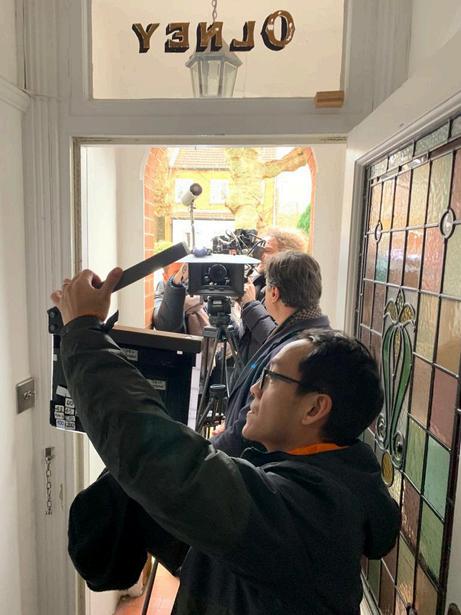
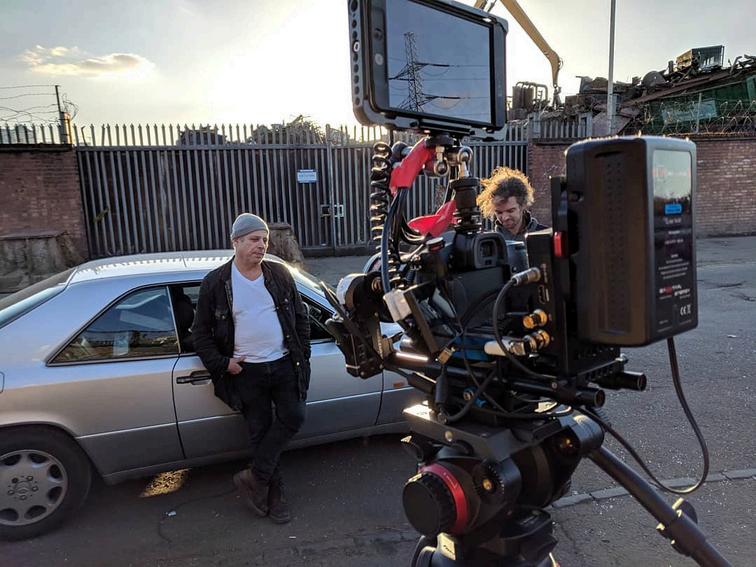
BL - Can you tell me what were the most challenging parts of that film? Have you got any moments that spring to mind, that were really challenging in terms of perhaps not so much the kind of relationship with the crew and the other actors, but in terms of location issues?
CS- Being bumped along from location to location was an issue..You know we were bumped a lot. I mean the scene at the swimming pool. We were shouted at literally from the first shot, so we just soldiered on and the woman's yelling, ''I'm gonna get the concierge”, and we just thought, ‘carry on..!’ We’d developed a really good guerilla mindset by then, just keep going until you have to stop, and that's how we did it..
BL - That's a good tip for anyone out there doing the same.
CS - Just ignore it, ignore it until you get shut down.. Until you really get pulled off by the cops or something.
We just kept shooting, because by that time, we'd learnt, we will never get this shot again in the pool introducing a main character, Jaz, who is played by Leanna Chea.
She's swimming up and down, we’re getting thrown out in five minutes, but you just thought - Keep going!
Stuff that was like that was quite challenging..

BL - Did you get hassled by any of the local population when you were shooting in the street?
CS - Never, I found the Thai people curious, but never hostile.
BL - Did you have any issues with the language barrier communicating with the Thai crew?
CS - No, because my first AD (Assistant Director) was a Thai American, he’s a Bangkok boy, but he's lived in London and New York and so forth; his Thai was actually worse than ours at first, but once he'd been there a little while, he got back into the groove, and he smoothed things out. You've got to have a Thai face, as ‘farangs’, (Thai for Westener) you’re fucked unless you have someone.
You need an intermediary who's got one foot in both camps, that's the only way to pull it off, he smooths out the cops, he smooths out the hotel concierge.
I mentioned him before the screening. He couldn't be there, he lives in Golders Green (London), he's just had a baby with his lovely wife. He goes from film to film to film to film, a lot of low budget stuff, but he's always in demand.
BL - What's his name?
CS - Top, that’s his nickname, Top Tarasin, t-a-r-a-s-i-n, he's a legend, I wouldn't go into a battle without him, and I wouldn't have survived without him.

He got us through the shoot, and the shoot was hard, because we didn't get what we wanted.

That was the biggest challenge, coming home with 60 percent of the script, then I had to go back and shoot other stuff in retrospect, like in London.
I had to flesh out the London stuff because the Bangkok stuff wasn't there, so I had to make it a dual narrative, so it’s interweaved.
BL - I assume you have to almost work backwards in a lot of respects to fill in the gaps which haven't been shot yet?
CS - Yeah, well when we were younger, we couldn't do that, because film's so expensive, you burn film, you know your producer would say that's it!
But digital in general, you could just keep shooting until the cows-come-home.
I mean that soup scene you know he's eating the spicy soup ‘Tom Yum Goong’. The ‘Tom Yum Goong’ scene, that was in the hairdressing salon, and I didn't know what it was about, other than Bernie was coming in and having soup, then we found the little chair, he sat down in it, and then it all developed from there.
We improvised and I kept going.
They went mad, the cast and crew, because they wanted to go home hours ago.
I haven't got what I wanted yet. I know there's something ahead. Just keep shooting, we'll find something; and gradually I found the relationship between ‘Oak’, you know the kid who wants the car.
Oak's the ‘Win Bike Rider’ (Bangkok Bike Taxi) - that developed into something, and then I went with it.
I hadn't written that, I just wrote a very normal, ‘let’s have dinner scene and a little bit of banter’, it was a filler scene.
But that scene nails the dynamic between the farang / Thai marriage when you know with the typical Esarn (poor farming area of North East Thailand) thing, and then the expectation to take care of the family, and then Frank’s broke, and all that started to come to my head, and actually that was invented, literally by shooting, shooting, shooting.
Then a thunderstorm happened, it was just an amazing night, it was theatrical in its intensity, almost biblical, thats when I realised something was special going on here.
With hindsight you can see the links, you can't necessarily see them when you're in the moment, you can sense them, that's why I kept pushing the crew and the cast, it was hot and they wanted to go home, and I was getting shaken down for more money for the hairdresser salon rental, and I didn't mind at all, I just wanted to keep shooting.
I couldn't have done that with film.This film could never be made.
I wouldn't have any hindsight, this film's only made by coming home and looking at what I got. What the fuck am I going to do now? And then taking it to developing ‘Eddie’, the boss in London and his wife. That all came in later.

Basically it allowed you to use a mindset, to picture and to build around what you have, filling the the gaps, right, filling in the holes, and then stretching it, finding the leads again, like you're sewing something, you know this goes here, that's what I said last night at the Q&A after the screening here in Bangkok.
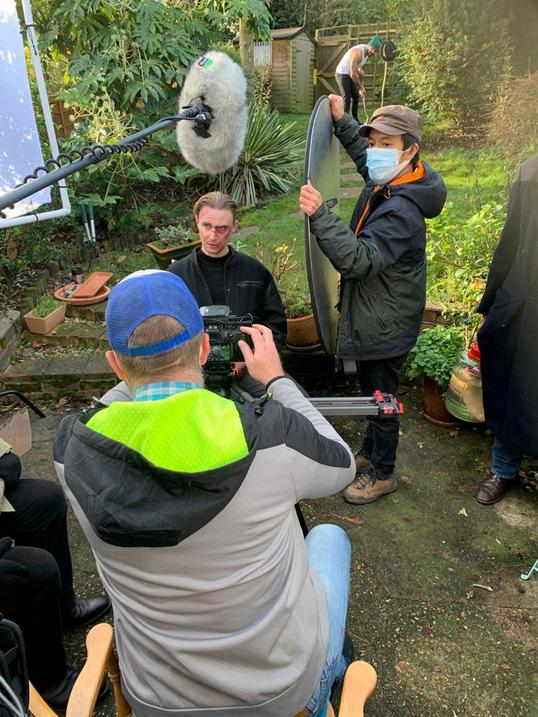
‘It's all about getting a good editor because after a while you get snow blind’
It's all about getting a good editor, because after a while, you get ‘snow blind’ you're on it for so long, just looking at a monitor continuously.
Andrius Dringelis is the editor.
This is actually a good story - he was working at a picture house in Shaftesbury Avenue (London’s West End) selling popcorn!
I walked past there every morning looking for an editor, not knowing he was in there, right!
But I was introduced to him through a friend - he said “you know there's a bloke I used to work with in the picture house, he can edit a bit”. He was not a polished editor, he was an instinctively smart guy who couldn't get any work in London, because he's like, you know, from Lithuania, but determined to make it in film.
And those are the characters that I find, you open the door, and give someone a step up, they will either respond, or they take the piss.
This guy's like all of a sudden in the West End of London, and everything opens up for him.
So he isn't just flogging popcorn anymore.
He couldn't work with ‘Avid’ (Pro Editing System), my brother Mike was a great Avid editor, all that generation were very good.
But the younger guys are not trained on Avid, and Avid is still for some reason, a clunky edit system, that is still the norm.. It's changing slowly with Final Cut and all the others like Premier, whatever.. If you have a standard like that, you can cut your film, then the color grader's got Avid, they've all got it.. you see, but he didn't know how to edit on Avid, so I just let him get on with it.
I said “you're useless, but you've got good instincts for the story.
Because anyone can find an assembler, but you need someone to say to you, “Clive, look you've missed this point, why don't we take that and bring it here”. And then you know, you go wow! I didn't think of that, because you're always locked in.

He had that ability - I would go up to Sunderland (home) leaving him. I’d give him the keys to my office in Soho - “just live there, I don't give a fuck, you stay here, just don't trash the joint mate”. And he didn’t, he’s very respectful, looked after the place, and I'd come down a week later..
It would be slightly better.. I said “oh you're not really getting the hang of this are you?”.
And he's going on, “give me another chance” and he worked hours and hours and hours, he trained himself on bloody YouTube videos. And by the time, like after three weeks, he was all right, he was bang on it, so he's selftaught, hungry, hungry to get into the business.
My nephew, Dylan was the original editor, a really good assembler, he did hours and hours in Covid.
But this guy came along, and helped me with the story, which is what I needed, to get the storyline right.
Once you get the story and get into a picture lock, then you can continue, because you don't want to spend money if you haven't got a story! What's the point!
If you're 20 minutes short, it's game over! You wasted everything.
But if you can get to an hour and a half..Different story!
There was so much pressure on me from various producers and freelance editors to cut the scenes down, chop, chop, to keep the pace snappy, and to have it ready, to present to the industry.
Andrius says “No! why don't you go and just stretch it out”.. We did, so the scenes are stretched, because if you notice they play out.

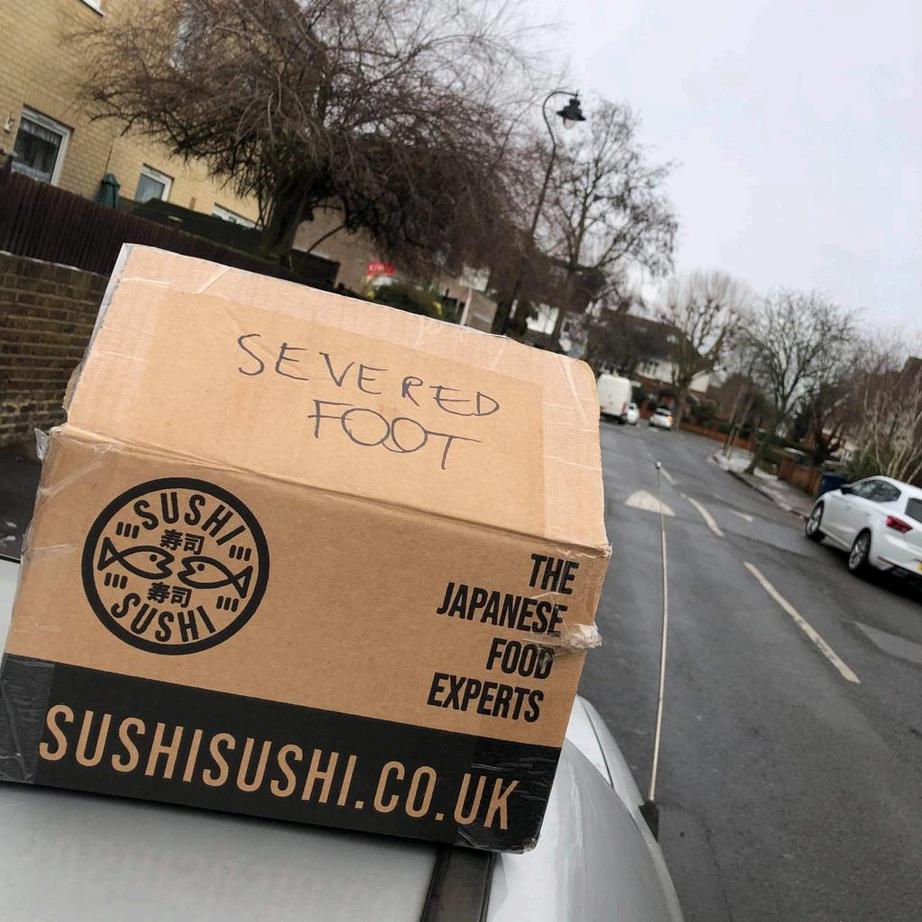
BL - You have captured that spectrum of humanity for sure, was that your intention at the start?
CS - I didn't really want to set out trying any great expose of life in Bangkok, but because I was working guerrilla, I had to use the environments these people lived in.
So naturally you get to see the story of people outside of the main story line. The main story line, let's face it, is basically a hook, a rail to hang stuff on. It's nice to have a tight story, but there's only seven of them, we know where this is going.
It's who's in that story, it's what you can do with it; if I can get a flavor of Bangkok, November 2019, just before Covid hit, when it was shot, and look at the people. Look at ‘Shem’, he is a desperate guy, the gun salesman, they're very desperate, there's a desperation here with a lot of people, but not all.
So yeah it was a really interesting voyage of discovery, and I love this town, and I hate this town, most people I know are confused by it. I'm revolted by it, I'm fascinated by it.

It's an amazing place, and you get so many Brits, your friends, they go to Bangkok and they only spend two days there.
They say - “I’ll spend two days at the Sheraton and then I'm off to Samui” (Tropical Island), that's what most of them do. But if you actually stay here, and spend a few weeks, a month, two months, whatever, it opens up to you, it's vast, but it's not that big, I mean it's big in space, but you know, it's, its own place, there's nowhere else like it.
BL - So what you're describing I think, is the fact that it's got very much its own heartbeat, it's got its very own culture and diversity?
CS - Yeah, It's got a clash of cultures, it's got their culture, it's got our culture, it's got Chinese culture, it's got it all, it's where East smacks into West.
It's interesting because the dynamic between Thais and foreigners, ‘farangs’, I think you know, is connected by touch, I’m not talking about the sex, commercial sex, I'm talking about proper Thai massage, so when you start feeling those fingers, you know, doing what they have been doing since they were kids, to get flexible bodies and stuff, you start to understand.
BL - I think Thailand is, or Thai people are, from my perspective, based on the senses, smell, eating, touching, listening, they're very touchy-feely in the way that they are tactile and not so much with the spoken word, would you agree?
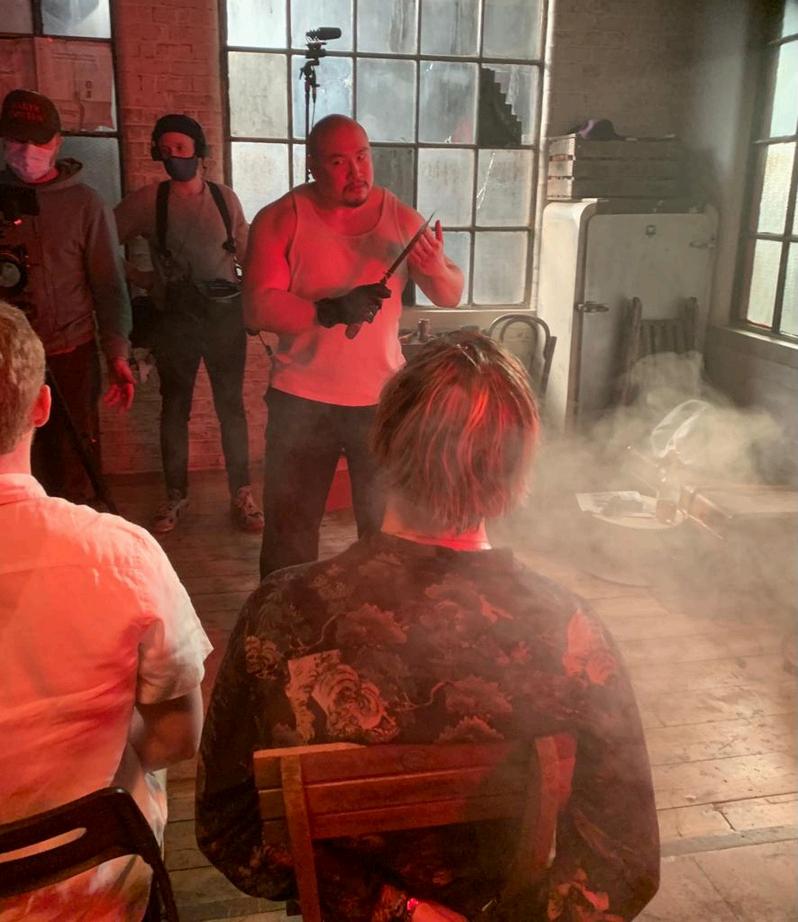
CS - Absolutely, they're not all in their heads, like the Europeans, they're very, very spontaneous, you know, that I like, because from the West we're all complicated, we're all fucked up in our heads.
I didn't really want to go into the cliches of the man, woman thing, I mean there's Frank and his wife, which is a bit of a cliché, the nagging wife, sure, but it made sense. I had to justify why my character, Frank, is going to risk his life on an impossible suicide job with the guy who fucked his wife, but I wanted to show his life when you meet the wrong Thai woman; I met many men that have, and they shouldn't be together.
Not so with Cliff. When I look back at Cliff and Tuk Tuk, I think I mentioned he’s since sadly passed away with cancer! He chose to go the coffee enema route; and throughout his countless bogus treatments in various miracle cure joints in PhuketTuk Tuk his Mrs was right there the whole time, holding his hand till the end. I know, because he would send occasional video bulletins.. It was very harrowing, and I fucking miss the bastard!
But conversely, I've seen some end games here that I wouldn't want to wish on my worst enemies.
You meet guys in gyms that have lost everything, you know, because they'd be stupid. Not because the Thai’s are naturally conniving, it's because why would you put yourself in that position, as a 60 year old man going out with a 30 year old Esarn girl? Having to go and live in, you know, up in ‘Udon Thani’ (North Eastern Thai City) or
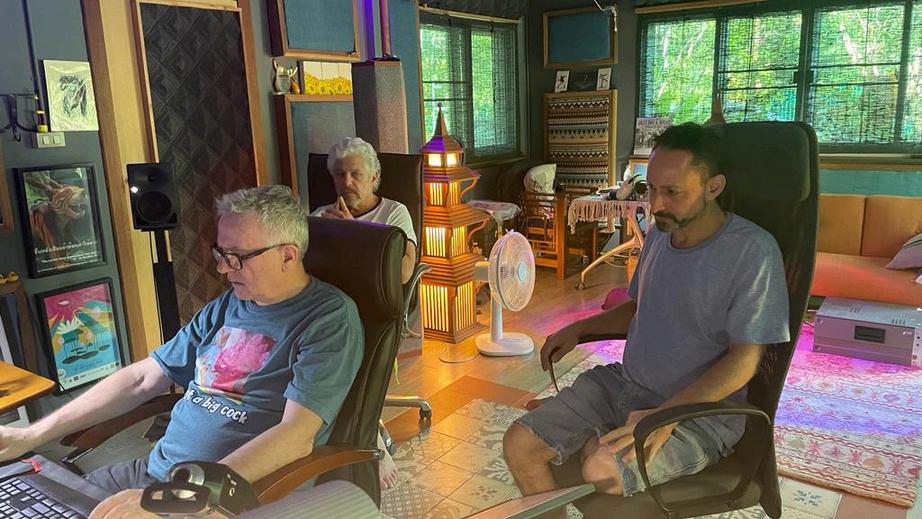
BL - What about the sound production and score? Which are worthy of note. Can you tell us who the main production folks that worked on this are?
CS - Thank you for mentioning this, yes, that is another important component to this, it’s the importance of sound.
I flew out to Thailand last month to work with Omie Craden, the post sound supervisor and dialogue editor.
I first worked with Omie back in 1998, in my Hollywood days. He'd won an Emmy for his work on a sit-com, ‘3rd Rock from the Sun’, I think it was.
He'd be working at one of the big studios out in Hollywood, and he'd sneak me in after hours, and there we worked on the sound mix for Love for $17.50.
So it was like completing the circle coming here and hooking up with him again after all these years..
We flew up to Alex Boyesen's studio compound in Chiang Mai, and did a killer mix there!
Alex used to work with John Martyn back in the day.

CS - Flying home, tomorrow, Christmas in England. I'll carry on developing my follow-up.
I know Ben and all the others want a Bangkok Job 2, but I'm not ready for that yet. I’ve just come out of six years of Bangkok Job 1.
I am writing a film called Bolt, which is about a man that bolts. He walks out the French windows on his family on his 50th birthday, loosely based on my dad, and the carnage that creates, and then he comes back.
I think you've only got one real wound as an artist that you work from, I can only speak for myself of course.
It's the abandonment issue when your father walks out, and then comes back, and it's like a double whammy of emotional trauma!
Because then all shit breaks loose on top of the original trauma.
but he's not the same?
CS - He's never the same, and the trust is gone, and gradually he dies, slowly in front of your eyes. It'll be from the perspective of my Mother and the impact it has on the children rather than from the father's perspective.
Obviously that sounds very depressing, so I've made it more up beat.. Because what he did when my dad left, he went to Hong Kong, and obviously I can't film in Hong Kong, so Bangkok will have to double up as Hong Kong, and he's gonna have a sort of underworld adventure. While he's here, I don't know what happened, but I'm gonna make it up.
BL - I think Bangkok's Chinatown is calling for you.
CS - I think so, and that's what I'm gonna be finishing off when I get home, and if anyone wants to look me up, I'm on Facebook as Clive Saunders, Instagram as Clive_Saunders.
My adventures on ‘Love for $17.50’ is chronicled in a book by Marc Shapiro, called ‘Bukowski on film’ (published by Riverdale Avenue books), and my Gacy exploits are relayed in ‘Murder Movie Makers’ by Matthew Edwards (McFarland press).
That's all I really need to say about that really.
Buzz Langton - Clive, it's been a huge pleasure to have had the opportunity to see the world premier screening of The Bangkok Job, and learn how it all started, and how it finally finished, and to learn something of the man that made it all happen.
I’ll see you in London for the UK premier in March. https://www.thebangkokjobfilm.com
Buzz Langton can be contacted at info@onecreate.co





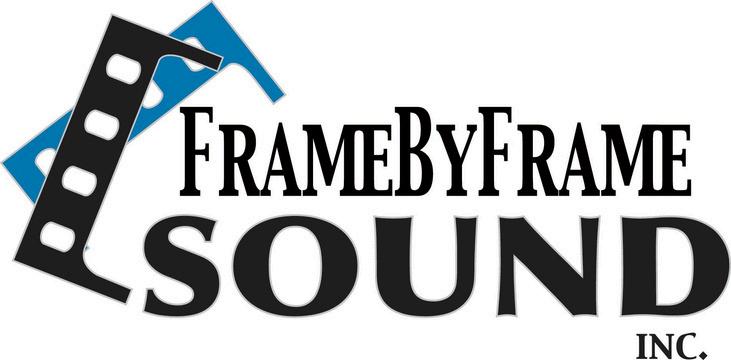
FrameByFrameSound’sOmieCradentalkshisabout37-year careerinfilmandtelevision,andhispassionfordesigningevocative, immersiveaudienceexperienceswithsound.
or as a long as I can remember, I’ve wanted to know how machines work.
As a kid, I would take apart and reassemble everything and anything mechanical in my home… Including my parents’ reel-to-reel tape machine, cassette decks, and turntable!
So, after working for 10 years as a child voice-over actor at numerous Toronto recording studios, and watching with fascination how recording engineers exactly captured everything I said, I knew, at the age of 17 precisely what I wanted to do for the rest of my life
I lucked out right from the start In 1988, I apprenticed as an assistant audio engineer, sound designer, and mixer at Sounds Interchange (now Technicolor Toronto), one of Canada’s largest sound studios.
I learned from the best. Audio industry giants Kevin Doyle, Scott Boyling, and Bruce Fleming, taught me the old-school recording and mixing techniques that I continue to use to this day.
Before long, I was engineering my own sessions
In ’91, I decided to take a shot at landing a job in the movie capital of the world, Los Angeles, and was hired by a major studio within two weeks. F



By ’96, after working at a number of high-end studios, Warner Bros, hired me as a sound mixer.
In ’97, our team won an ‘Emmy Award’ for ‘Best Sound’ for the hit series ‘3rd Rock From The Sun’.
We were nominated again the following year, the same year I was introduced to film director Clive Saunders, who just happened to be looking for a sound designer / mixer for his short film, ‘Love For $1750’, which was based on a Charles Bukowski short story.
I’ll never forget the feeling I had watching Clive’s film for the very first time At that moment, I knew that Clive was the director I had to work with.
His vision and storytelling abilities blew my mind Here was an intriguing, independent, lower-budget project that would give me the chance to express intense emotions with creative sound design and music, something I wanted to do for a long time.
Although I would always enjoy working on TV series and ad campaigns, I continued collaborating with independent filmmakers in L.A. When I returned to Toronto in 2001, I founded ‘Frame By Frame Sound Inc’, which provided local and remote sound services for film, TV, advertising, and corporate clients. From the beginning, many of the films I was a part of won awards at TIFF, Raindance, and other major film festivals.
One of the highlights of my career was working for Canada’s largest TV conglomerate, CTV/Bell Media
Right from get-go, I was assigned to long-format and reality TV shows, documentaries, promos, and sports programming, eventually working with the CTV team on the 2010 Vancouver Winter and 2012 London Summer Olympics broadcast
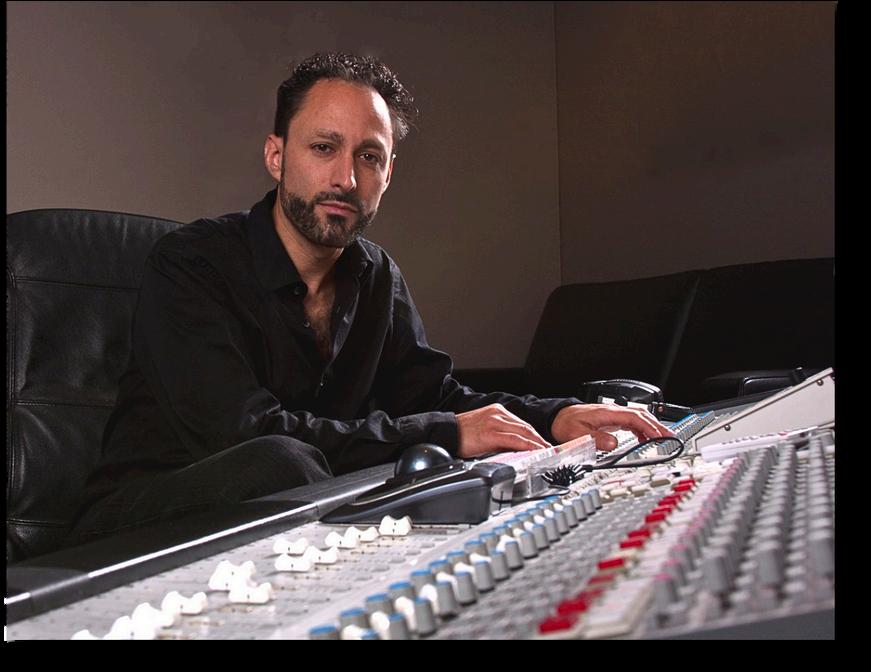
In 2018, I reconnected with Clive, moved my company to London, England, and built a successful sound studio.
Many of the film and TV series I worked on were distributed by Amazon Prime, Apple TV, and other streaming services.
By that time, Clive had written, directed, and acted in his feature film
The Bangkok Job
Because we planned to finish the post production sound in Bangkok. I decided to keep my studio in London, build one in Bangkok, and assemble an A-list team of sound editors, mixers, and Foley artists to deliver full-service post production sound, both locally and remotely, at a fraction of what clients normally pay in their home countries.
In 2023, Clive brought me onboard as a co-producer and sound supervisor
Armed with a realistic budget, we immediately hired the remarkably talented, Bangkok-based film composer, Simon Webster, and sound designer / mixer extraordinaire, Alex Boyesen.
Sound editing and mixing ‘The Bangkok Job’ with my team was definitely a challenge.
The exterior Bangkok scenes had to sound authentic. The audience had to feel that they were in the middle of the city My team was more than up for the task.
They spent untold hours carefully constructing an immersive Bangkok sound tapestry: the constant noise of city traffic, the put-put of the local motor bikes and passing tuk-tuks, the hammering of construction, the hubbub of Thai crowds, the rumble of overhead BTS Sky Trains… and even the occasional crowing of a rooster!
The final sound mix, completed at Alex’s Digital Mixes studio in Chiang Mai, Thailand, was beyond everyone’s expectations
And I’m happy to say that it was very well-received at its Bangkok premiere
Throughout my career, my intentions have been unequivocal: To bring my A-game to clients, local and remote, large and small, to enhance the telling of their unique stories.
Bangkok Phone & WhatsApp +66 (0) 82 917 3089
London Phone & WhatsApp +44 (0) 7949 345211
Email: framebyframesound@gmailcom
Web: https://wwwframebyframesoundcom
FB: https://wwwfacebookcom/omiecraden
IMDB: https://wwwimdbcom/name/nm0185667
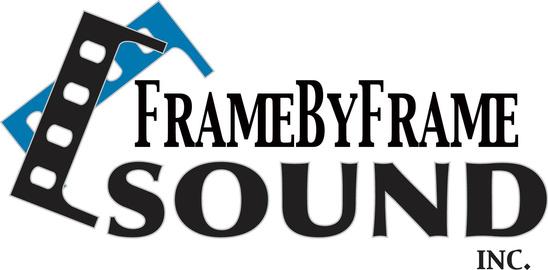

 by Buzz Langton
by Buzz Langton
The images shown here were taken at a Northampton movie shoot with actual Mods and they're super scooters for a movie teaser, which unfortunately didn’t get made due to budgeting constraints, which allows me to share these images and the story here..
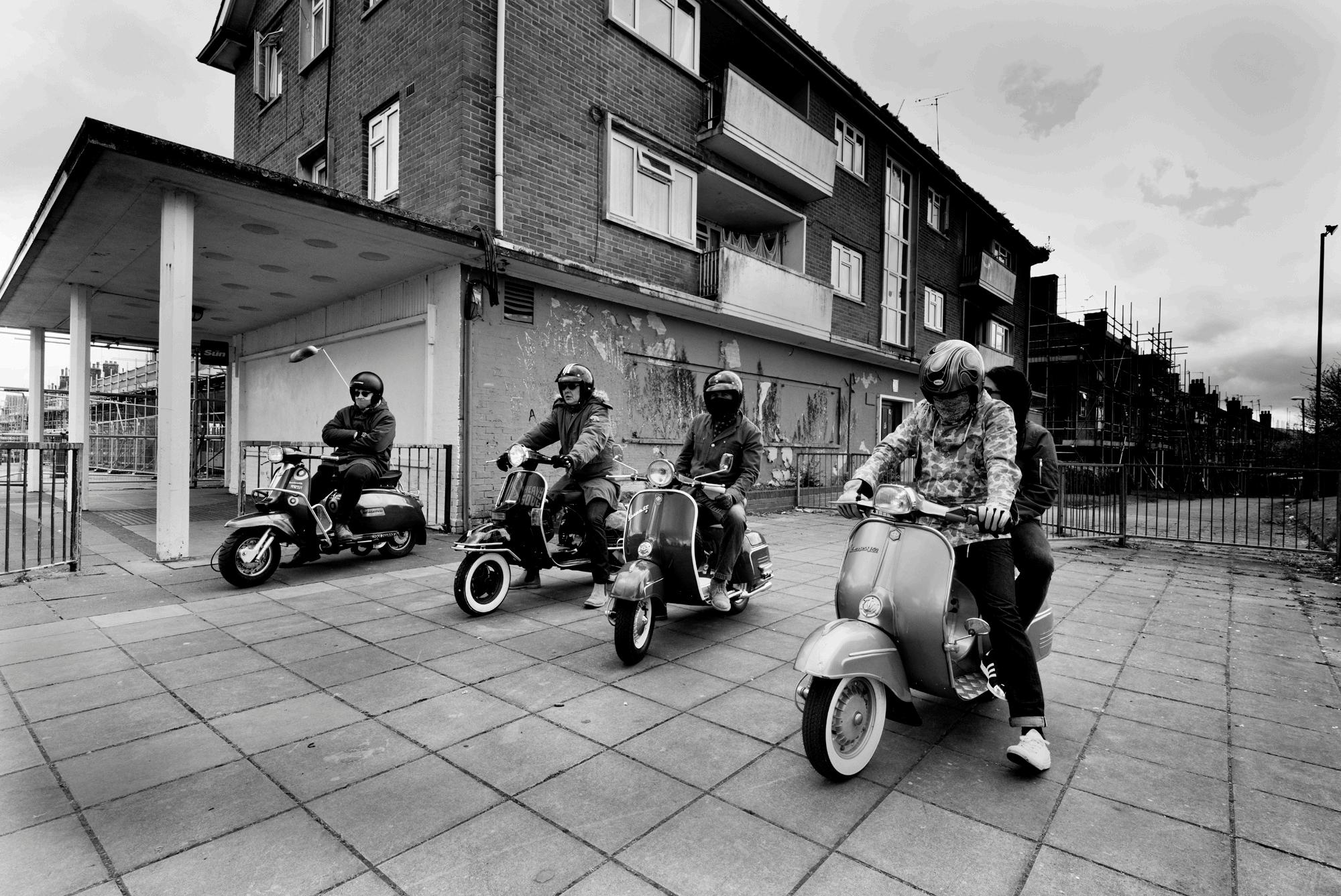
It was a long couple of days, as always it was hugely enjoyable working with a dedicated professional crew and actors.
The amateur actors on their machines were amazing. They really followed the directors directions perfectly and they loved the process of film making
Many of the shots of the bikes in motion were taken from a lead camera vehicle up front, going along at the maximum legal road speed, somewhere between 30-50MPHso it was pretty quick for all concerned, focusing was challenging, as was coordinating the squadron of Mods behind us


The main camera film guy (DOP) and I, were strapped In tightly with harnesses ensuring our safety, and of the Mods on their scooters
There should be zero chance of a stray camera or camera man suddenly presenting themselves as a lethal projectile directly in their path
In a addition to the technical and physical challenges in such a shoot, being a film stills photographer comes with it a curious irony
your work can be widely circulated and seen across various platforms globally, yet the role itself remains largely unknown to many, so we are unsung hero’s in this case.
When I explain my profession, the most common reaction is often, "I thought those images were grabs from the actual film?"
Far from it! They are meticulously captured by the unit still photographer on set. Their job is to document both on-screen action and behind-the-scenes moments
These photographs serve a multitude of purposes, from marketing the film or TV show to gracing articles, reviews, and social media campaigns, as well as sometimes adorning posters and billboards worldwide.

However, the essence of being a unit still photographer lies in not disrupting the filming process. Historically, camera shutters were mechanical that produced a noise when you exposed the film; so a special sound dampening box (known as a ‘blimp’) was used to house the camera and make it quiet The box was unwieldily and not agile to use.
Without it, you would create problems if the sound crew picked up the sound of the shutter going off during a take (a big no-no)
Nowadays, modern digital cameras have digital shutters that allow us to take the images in complete silence, modern technology has certainly improved the job of a a unit stills photographer
While our images are vital for future promotion, on set, the priority is ensuring the cast and crew achieve their shots efficiently. This means seamlessly integrating with the production team, navigating often limited space, and fostering a rapport with the actors and crew
I often liken the role to a blend of being a ghost, a photographer and mindreader, as you need to read the ever changing situation and react accordingly.
Despite the allure of glamorous shoots in exotic locales with renowned stars, the reality entails days spent enduring adverse weather conditions or traversing rugged terrain. Yet, every hardship is outweighed by the opportunity to capture a remarkable image and work with truly professional people that are passionate about their craft.




Introducing Simon Webster
“In the serious business of filmmaking, it is the music that serves to guide the audience's emotions“
Behind every movie moment, there's a sound design, created by a composer perfecting a blend of notes and rhythms. This is where sound meets the silver screen – the world of composing music soundtracks for movies.
Imagine a world without the haunting notes of John Williams ‘Jaws’ or the iconic ‘Imperial March’ from ‘Star Wars’. It's like Fish without the chips – you're left wanting.
Composers are the architects of emotion, crafting musical landscapes that enhance storytelling.
When a change of mood is needed, various melodies can help punctuate, joy, sorrow, tension, triumph, anger and so on.
Before the first note is played, composers have to learn and immerse themselves in the world of the film that they are composing for.
They dissect scripts, engage in deep conversations with directors, and absorb the visual aesthetics, a deep need to understand the context is applied.
It's a delicate balance between imagination and collaboration, where composers become storytellers with their own ideas mixing auditory with the visual.
Composers are the painters of soundscapes, creating sonic mood boards and selecting instruments like a chef picking ingredients for each course..
The best film composers possess a form of ‘cinematic-synesthesia’, they see colors, shapes, and movement in the music they create, and that is why they can make a movie even bigger.
It's not just about the auditory experience; it's about crafting a sonic tapestry that seamlessly intertwines with the visual elements on the screen - it’s a dynamic, and requires an incredibly artistic set of skills in which to do this..
The composer can enhance, change the mood, drive and direct emotions at will.. It’s an important job to get right, hence the intensity in understanding what the director is trying to convey.

Simon Webster, composer of this years crime comedy feature ‘The Bangkok Job’ [click the link to listen] is an award winning film composer, producer and songwriter.
Frequently published by Universal, Warner and BMG during a career than spans a decade.
Simon’s music has featured on the BBC, NBC, HBO, Channel 4, ITV, National Geographic and Sky Sports.
He has also composed for major ad brand campaigns, for Peroni, Lexus, Ferrero Rocher, Electrolux, Colgate and Vietnam Airlines to just name a few well known household names.
His music has also been used on TV programs including Saturday Night Live, The X Factor, The Voice, Supergirl, I’m a Celebrity, Masterchef, The Apprentice and sports coverage such as NFL, UFC, European Cup, Champions league and Premier League football.
Simon has written original songs for K-drama and T-pop and is currently scoring his first Korean feature film, expected for release later this year.
Want to hear some of Simons compositions.. Visit Simons Spotify profile [click the link to listen].
If you’d like to get in touch with Simon, here are the best ways to connect:
www.simonwebster.net
info@simonwebster.net

What inspired you to pursue a career in animation, and how has that inspiration evolved over time?
I never actually planned a career in animation. I loved cartoons and movies as a kid (look up the feature film releases for 1981, it’s incredible, how could you not love movies?!), but I wasn’t much of a visually artistic kid.
What I really loved was music, and I started playing drums when I was 13 years old. Making music and wanting to be in bands brought me to Toronto when I was 19, where I met up with some awesome folks and we formed a band called ‘The Mercurymen’.
At the time, I was a line cook in a busy downtown kitchen that serviced the financial sector’s lunch crowd, so it was a grueling, thankless, underpaid job.
But then my band mate Neil Exall’s better half, Janice Walker, was working at an animation studio and needed help.
I begged her to hire me, and that’s how it all began. I started as a PA in the design department, making model packs, sitting at an animator’s light table with scissors, tape and a photocopier and running back and forth from director to artist getting approval signatures. From this point it all just clicked. I loved the energy, the people, the complexity, the unpredictability, and the need to think fast on your feet. The deeper I learned about how things worked - or rather DIDN’T work - the more interesting it became.
It continually amazes me what people can do as a team, and through the years seeing the incredible visuals that people around me have made just blows my mind. I take immense pleasure in being stuck right in the middle helping to connect the people, the business, the technology and the operations into one glorious complicated web of awesomeness.
Can you walk us through your creative process when conceptualising and developing a new animated project?
Along with a love of building studios and teams, I’ve developed a passion for creating my own ideas for series. I love writing in short bursts, so creating concepts and pitch decks suits me perfectly. For stories that purely come from me, I typically let it stew in my head for a few weeks, running various scenarios, until that magical moment where I’m ready to type. When that happens, I usually just take a day or two and then pound it out into a Keynote presentation: writing, finding visuals and formatting at the same time.
Often it just pours out and after 2 or 3 days there’s a fairly reasonable presentation complete with synopses, episodes arcs, character bios and so forth. On the other hand, I also love to create in a team.
I’ve got an awesome partnership in a company called Bang In Bangkok, and I work quite closely with my good friend François Belot, where he leads ideas and I enjoy refining.
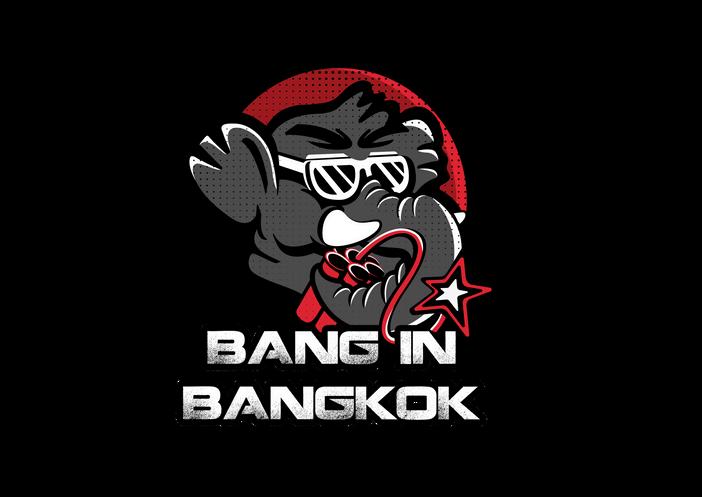
It’s a similar case with the other Bang In Bangkok partners: Antoine Heber-Suffrin who is awesome with story ideas, and Wanchana Intrasombat who is simply a force of nature with the stunning conceptual art that he creates.
Together, with Hollywood writer and director Chris Jenkins, we ’ re very close to getting our first feature film, “Up Chao”, into production, which is set in Bangkok & ancient China, and based around Wanchana’s gorgeous artwork. Hoping this is in theaters worldwide by 2026!
How do you balance artistic vision with practical constraints, such as budget and deadlines in any given project?
This is one of the joys of animation! Animation has always been about cheating as much as possible, so coming up with work-arounds and solutions is an art-form in itself. In the olden days it was more practical - we always joked that Ralph Bakshi’s 1960’s Spider Man series was made with a just a producer, a camera and a filing cabinet after episode 1 - but nowadays there are incredible technological options for getting the best with the least. And I love that every new project is a new formula you must create to produce it. Never a dull moment!
What do you consider to be the most significant technological advancements in animation in recent years, and how have they impacted or indeed expanded your approach to storytelling?
It’s really got to be the adoption of ‘Unreal Engine’ from gaming into animation. While it’s not necessarily a significantly easier or cheaper process (at this point anyway), it’s an entirely different way of working. Instead of trying to envision what the final will look like, inching along, step by step, checking in at multiple stages before you get too far to go back, Unreal allows you to put all the elements together at once, enabling you to see a nearfinal image, while still being able to tolerate adjustments to camera, designs, animation, lighting, FX… Incredible. In the past, I can’t count the number of times we ’ ve gotten to the end of the line on the first episode and there’s something that could have been done differently, but everyone has to “live with it” (aka LWI) for the remaining episodes because it’s simply too labor intensive to go back Unreal Engine allows one to just make better content

Can you share a particularly challenging project you ’ ve worked on and how you overcame obstacles to bring it to fruition?
Back at the turn of the century, one brutally challenging project (that shall remain nameless, as its utterance still evokes brain spasms), went horribly off the rails and my only solution was to fly into Ho Chi Minh City, Vietnam, to perform triage.
This event proved to be one of the most significant moments in my life, leading me on a path across Europe and ultimately landing in Bangkok where I have been for the last 12 years.
While the details of this absolute train-wreck of a project would be a titillating article in its own right, the highlight of the story is the epitome of extreme production solutions. Midway through production, it came to light that half of the show’s scene folders were being held hostage in a business partners’ spat, at a studio on the outskirts of Ho Chi Minh City.
One of the owners would only release the work when we purchased the entire contents of the studio - desks, chairs, pencils, pencil sharpeners, our show (presumably), etc. - for precisely $10,000 USD. So, within the same day, we had to arrange a moving truck, get 10k out of the bank, and go (alone) to meet her in a hotel lobby with a satchel full of cash. After (no) negotiation, it was decided we would drive through old Saigon in a Mercedes with blacked-out-windows, $10,000 USD banded and manicured 100 dollar bills slung round my shoulder, (about twenty years salary for a Vietnamese animator at that time), to get to the studio.
To say I was on edge would be putting it mildly. What followed was like a clandestine military extraction operation - it was night, the lights were off, we sat in a small lamp-lit room as she counted and wrote down every serial number of each bill, while I cross-checked all the missing scenes. After seemingly forever, she cleared the payment, the truck showed up, we loaded the entire contents in the dark, and vamoosed. Utterly nerve wracking, but sorted!
It was at this point it dawned on me: there are NO limits to solving problems.
Tell us about the magic in animation, how its never ending creative dynamic and diversity means it will forever grow and be a mainstream medium in TV and on the big screen..
The magic of animation is that the possibilities of style are limited only by the imagination of the 8 billion people on the planet. And as long as the visual style supports the story, “quality” becomes a moot point. Take a look at the popularity of South Park, for example. It doesn’t hide the fact that it’s insanely simple and cheap looking, rather it leans heavily into it, and it’s a smash success, on its 26th (27th?) season!
And now that all us Gen X, Y and Z’s are old folks, there’s a massive rise in adult animation, which often forgoes ‘Disney’ quality levels in favor of the stories.
On the flip side, studios who push the boundaries with highly specialised, top-end visuals are also in a renaissance period right now, such as the Arcane series or all the incredible video game cinematics coming out Wonderful, wonderful stuff.
With the rise of streamers, global content has become highly sought-after, so we all get to see stories and styles from every corner of the globe - Asia, Europe, South America, and (with a push from the worldwide Black Lives Matter explosion) a well-deserved focus on the talents coming out of Africa. I really think we ’ re in an amazing era of content right now.
How do you stay updated on industry trends and innovations, and how do you incorporate them into your work?
Apart from the standard trade mags, (like Kidscreen, Animation Mag, Cartoon Brew & AWN), LinkedIn has become a spectacular place for the business of animation. There is such a wealth of information flooding this platform daily, from artwork to business info, studios, content, support, technology, news and all kinds of networking possibilities. If they can get around to improving their communication app, then there will be no other source more valuable! All one needs to do is start following, reacting, commenting and connecting.
What advice would you give to aspiring animators looking to break into the industry, especially considering the competitive landscape?
To break into the business, more than any info on a CV, regardless of how much experience you have or don’t have, a kick-ass show reel/portfolio will guarantee you a job, no question You don’t need big titles or big studio names, just download some free rigs and animate, or paint, draw, model, surface any of your own ideas; but do it REALLY, REALLY well. You need to make people come out with the “fire” and “mind blown” emojis.
When I cruise around LinkedIn the posts with the hundreds and thousands of likes are NOT studios or producers; they are individual artists who post their awesome work. This gets you noticed, and talent gets you a job. Period. However, once your foot is in the door, and you want to stay in the business, you will need to be able to consistently hit two key targets, following in order of importance: Accuracy - Follow notes. Follow art direction. Follow technical rules.
Throw in your own subtle ideas when you feel it’s appropriate, but the more you can prevent your submissions from coming back for fixes, the more trust you have earned, and the better for your future employment.
2. Speed - once you have nailed the accuracy part, focus on speed. If you can get things done accurately AND quickly, you will ALWAYS have a job.
Where are the best places to learn more about Chardo Animation and how do we connect / contact you?
If you’d like to learn more about Chardo Animation, head on over to our various internet outlets! Or you can contact me directly at marty@chardo-anim.com I believe strongly in answering ALL messages from everyone, and will be happy to hear from anyone!
Website - chardo-anim com
Facebook - facebook.com/ChardoAnimation
LinkedIn - linkedin.com/company/chardo-animation
Instagram - instagram com/chardoanimation
Website - www.banginbangkok.com
LinkedIn - https://www.linkedin.com/company/bang-in-bangkok
Facebook - https://www.facebook.com/banginbangkok/
 Marty Knox
Marty Knox

A large Monitor Lizard was a regular visitor to our dubbing studios in the heart of Bangkok city. We named him “Frank” because he looked like he was going to be doing everything “His way” and we certainly were not going to get in his way either.
Thailand is teeming with life of all kinds but also its home to an immense pool of creative talent. Throughout the world-famous Thai art community and also in the huge local expat community, you can find actors, musicians, filmmakers and digital artisans of all disciplines.
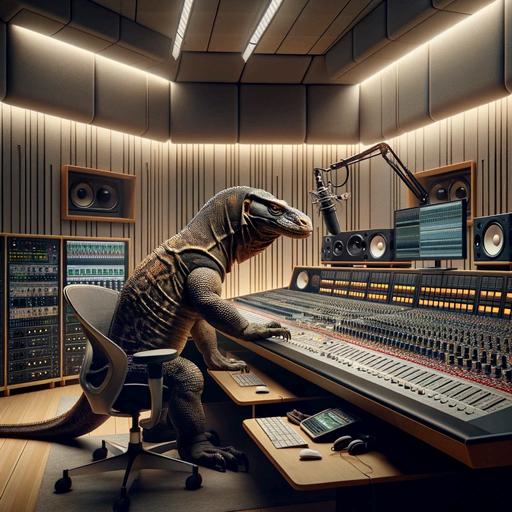
For us, it's a great place to find the right voice actors, directors and sound wizards for our voice-over and dubbing productions. We work with locally based voice talents from all over the world and believe it or not, we can record in not only English or Thai, but all the Asian, European and Middle Eastern languages, not forgetting the languages of Latin America also.
When dubbing feature films, video games or TV shows lots of energy and focus is required by the voice actors.
The talents we have the pleasure of working with are some of the most dedicated and professional people I have ever seen. They can create the voice of an Evil Chaos, Lord of Doom on Monday, a small, cute, baby fish on Tuesday, and a wise cracking, tough guy cop on a Wednesday. If there is one thing our friend Frank’s visits taught us, it is that you never know what you will see or hear each day in the studio.
Talking about studios, the first recording studio I built was located in a small broom cupboard, half-way down a long corridor in the office of the company I worked for 20 years ago. Pilled in with office supplies and cleaning products I set up a microphone in the corner surrounded by HiFi speaker insulation (that recycled material you find inside loudspeakers) and began recording auditions.
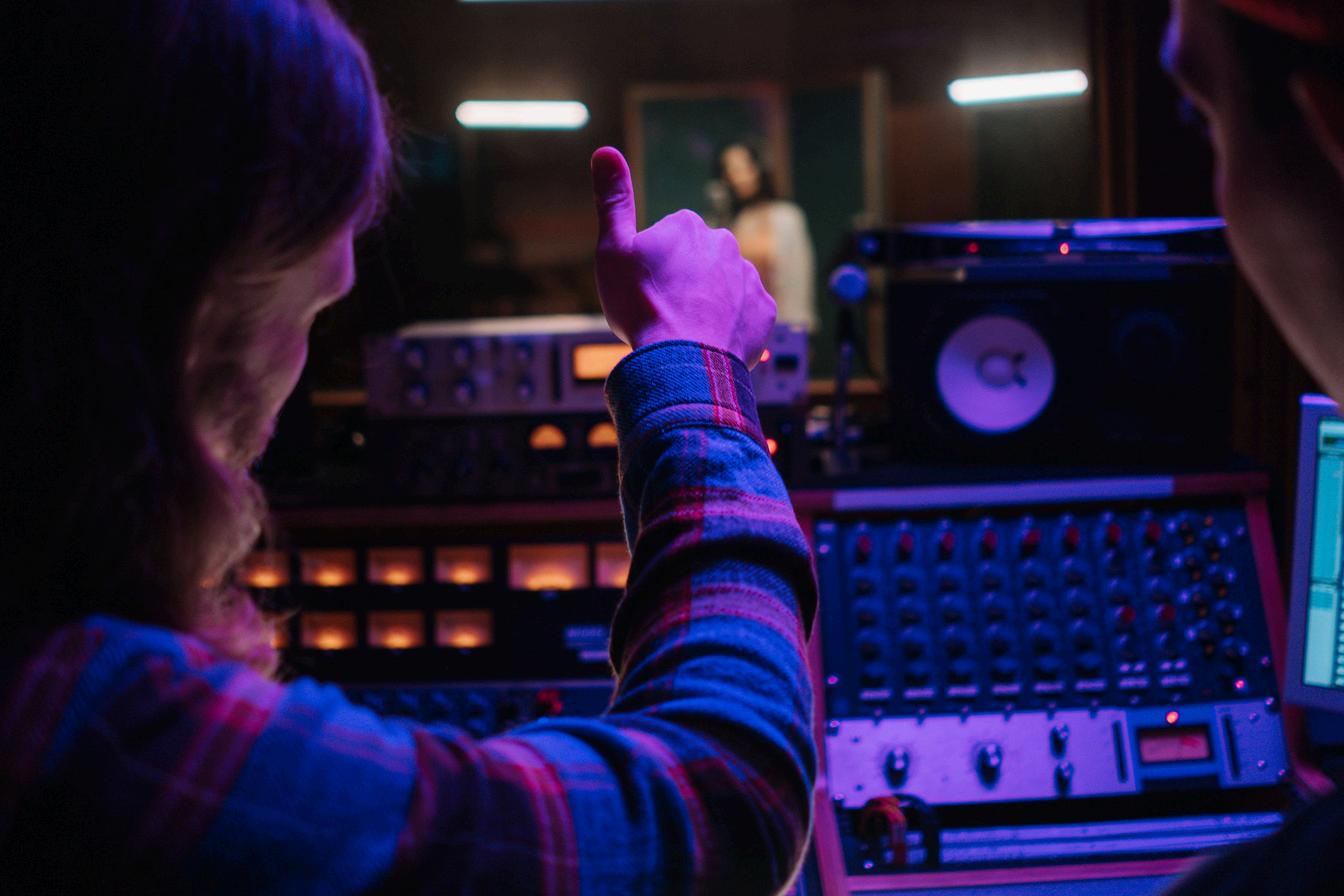
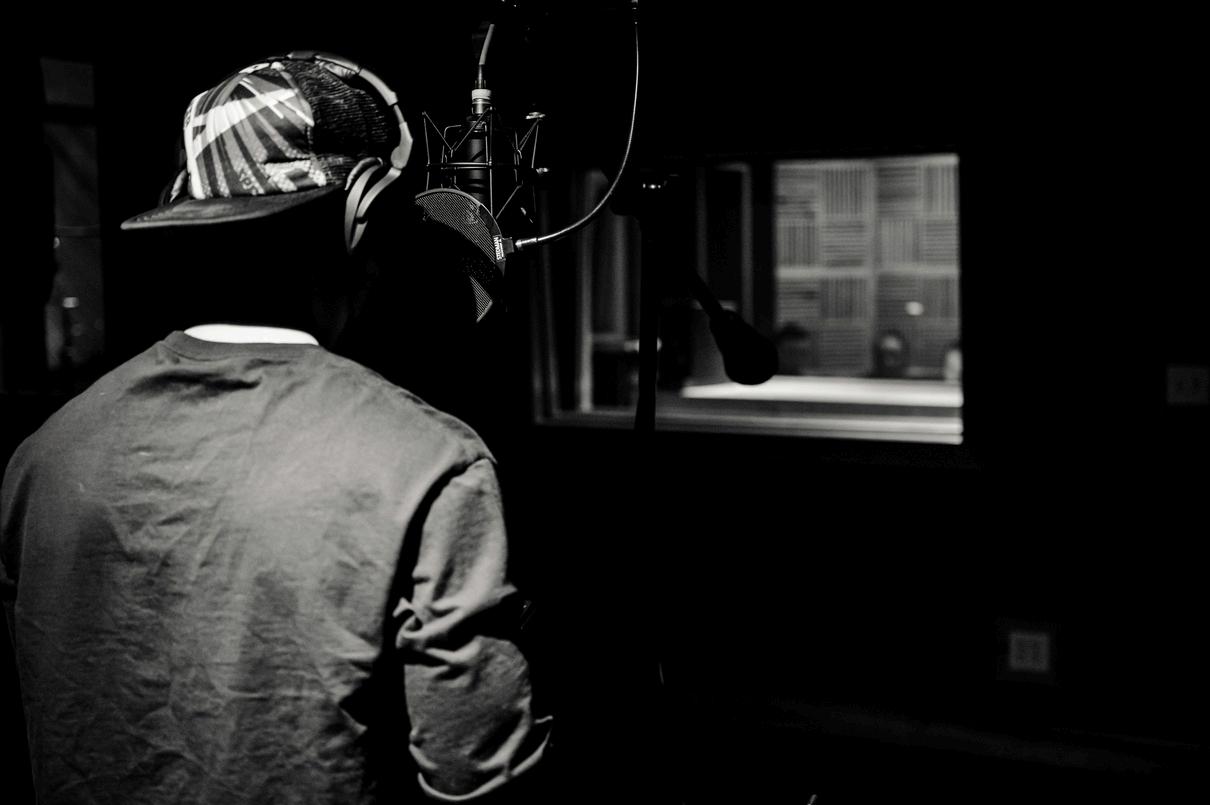
20 years and 9 professional recording studio builds later, I now record in slightly more comfortable and spacious studio rooms. But the principles and techniques I use remain the same.

Having expensive gear, properly soundproofed and acoustically treated rooms, is very important. But they are only as good as the sound engineers operating them, the art director’s communication skills and the voice talents who are performing the script. When you have the right team (excluding Monitor Lizards!) and synergy in the studio, magic always happens.
At Tiger Horse Media we offer world class voice-overs, dubbing and audio post production services for film, television, video games and all online platforms.
Get in touch and tell us what your next project is all about..

david.s@tigerhorsemedia.com
tigerhorsemedia.com
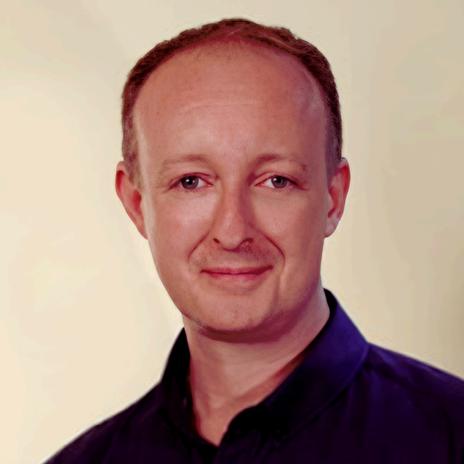 David Scott
David Scott


Thailand, a nation of extraordinary diversity, that seems to effortlessly weave together its religious traditions, cutting edge technology, and timeless charm.
Steeped in Buddhism, Thailand's main cultural identity, thrives in its temples or 'Wats' These stoic and historic structures, such as ‘Wat Arun’ stealing the limelight on the banks of Bangkok’s Chao Praya River, encapsulate centuries of spiritual resonance.
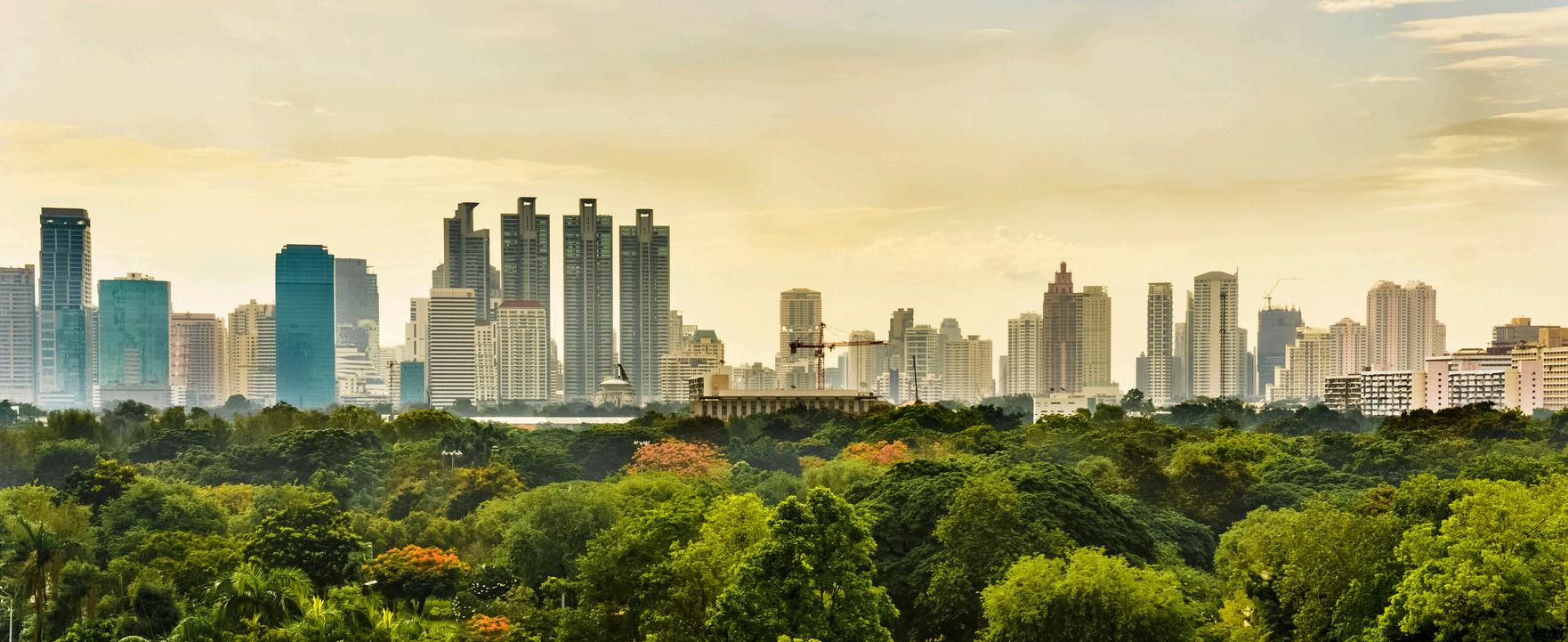
Take the Grand Palace as a prize example, an architectural masterpiece, that mirrors the enduring classic temple style art legacy, it literally threads through the Thai psyche, and can be discovered in everything from art, design, architecture, both modern and old, its street furniture, through to fabrics and even food and fruit carvings, it’s absolutely everywhere if you stop to look.
Thai cuisine, a harmonious fusion of flavours, needs no additional hyperbole or introduction as we all know its reputation as one of the worlds most loved cuisines
Street vendors and upscale establishments alike contribute to a culinary landscape where every bite tells a story, and Bangkok has some 300,000+ vendors.
It is said, the variety of food in Thailand is so great, that you can eat a different dish for each day of your life
Possibly true if you take into account all of the regional variations of each dish, and then of course every chef, cook, ‘Mom and Pop’ have their own recipes
A nice thought if not feasible.
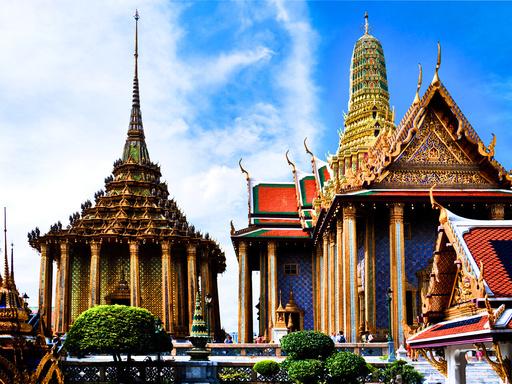
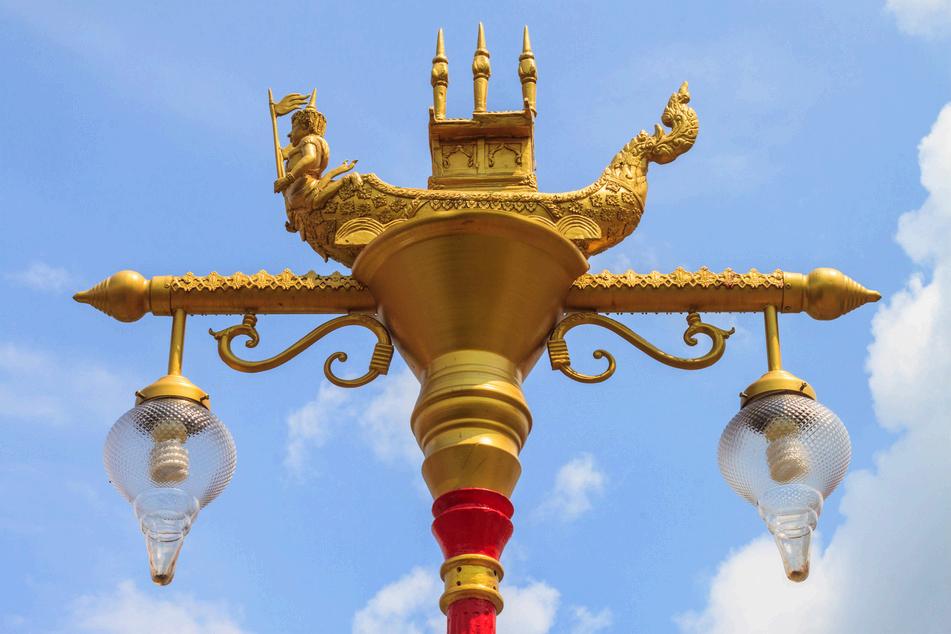





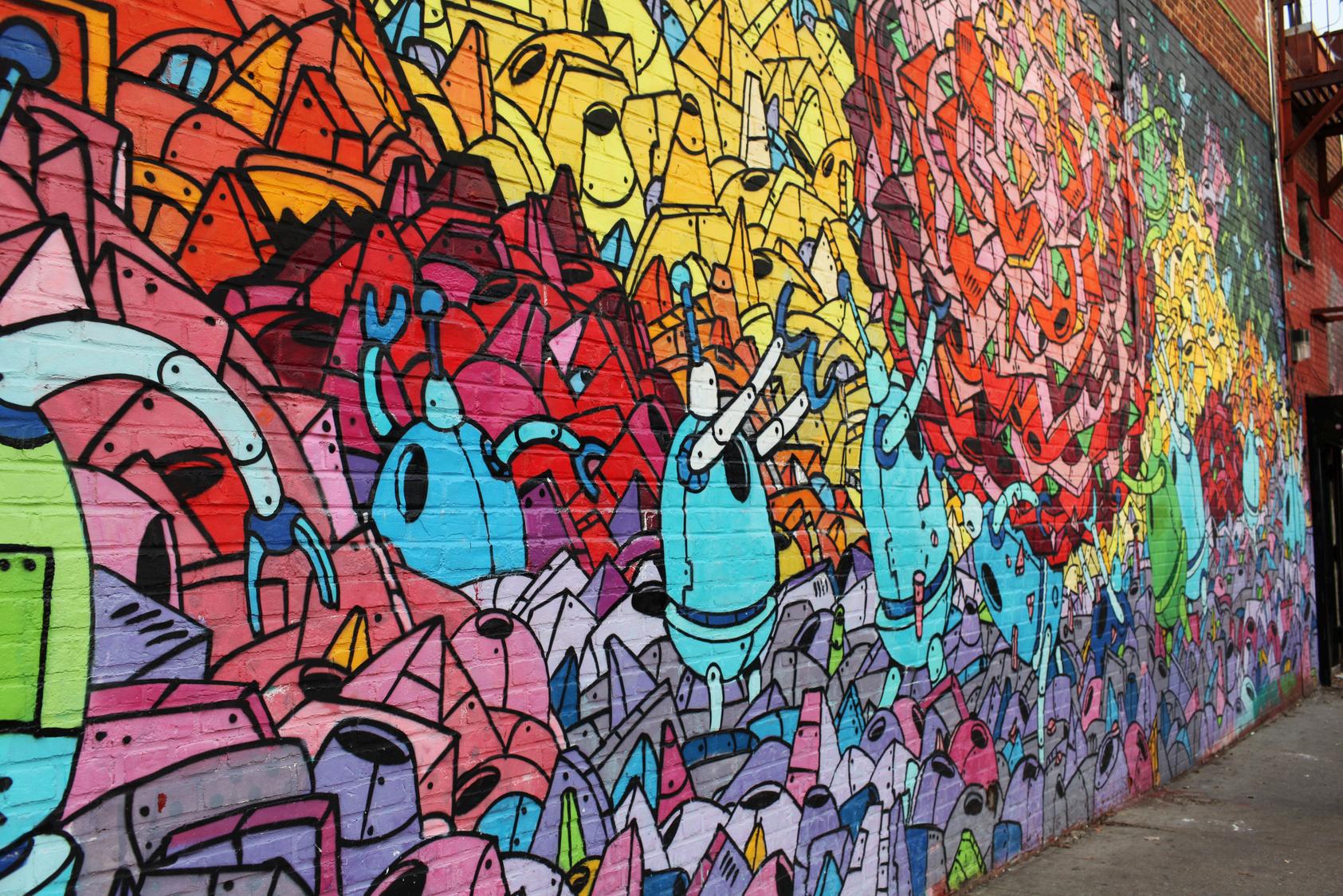
What sets Thailand apart as a destination of choice for expats and entrepreneurs alike, is its unparalleled ability to hold on to it’s welcoming traditional values, whilst forging ahead with it’s technology innovations and contemporary culture.
There are so many automotive factories in Thailand, that it is starting to feel like Detroit has relocated here, and that is because the technology is here to to support modern industry, and that hasn’t happened by chance.
Bangkok’s co-working spaces and incubators foster a dynamic environment, propelling Thailand into the digital forefront in Asia From e-commerce ventures to cutting-edge tech solutions; entrepreneurial zeal is here and reshaping Thailand.
Tourists may not see the face of this but there is a distinctive energy pushing Thailand along a new path, perhaps one day, Thailand will wear the mantle of the number one Asian Tiger.
Bangkok, is the heart of this cultural and growth mosaic, some may call it chaos, but it does have a rhyme and a reason to it This is the cultural core that breathes life into every aspect of Thai living. From it’s classic architecture, modern office and condominium towers to the older street level town houses that stand along nearly every street.
The Bangkokians and their streets are now more vibrant than ever Spray painted murals by contemporary artists are mirrored by its popular culture, music, fashion and self expression that have awakened a nation that embraces both its artistic roots and contemporary expression Bangkok is fully awake and very much more vibrant than some (if not most) of it’s western cousins
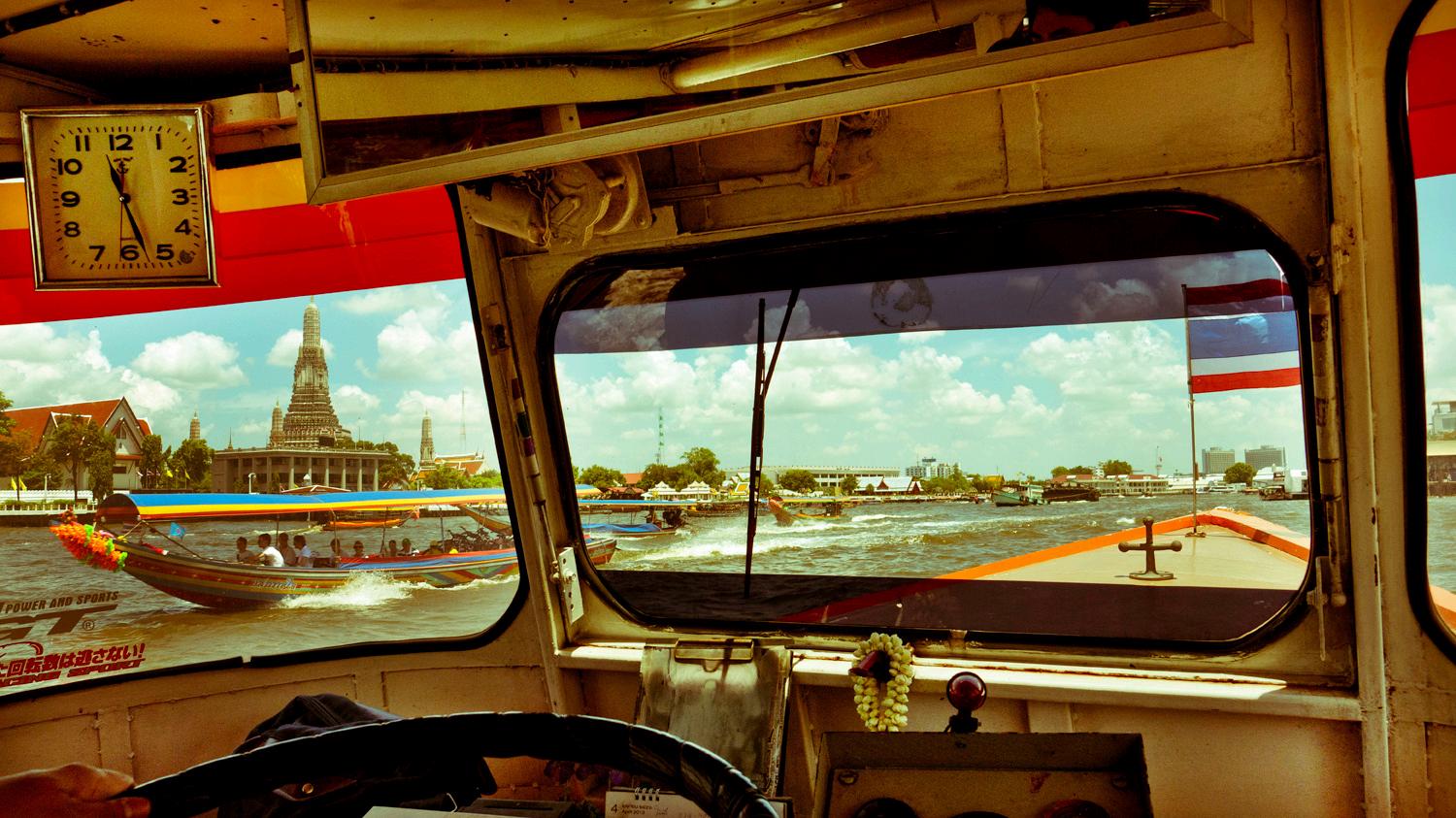 The Timeless Mae Nam Chao Praya
The Timeless Mae Nam Chao Praya


The Bangkok, music and fashion scene has developed into it’s own vibrant culture. It’s slightly reminiscent of London in the 1980's - The once conservative Thai’s have lost their inhibitions and now fully embrace their own heritage, taken a slice of other cultures and turned it into their very own fashion statements, Thai Hip Hop and street art are actually world class They do it so effortlessly too.
In your face, but with a smile. So Thai, so perfect!
From the more traditional ‘Sak Yant’ (Spiritual) style tattoos to todays modern contemporary street look
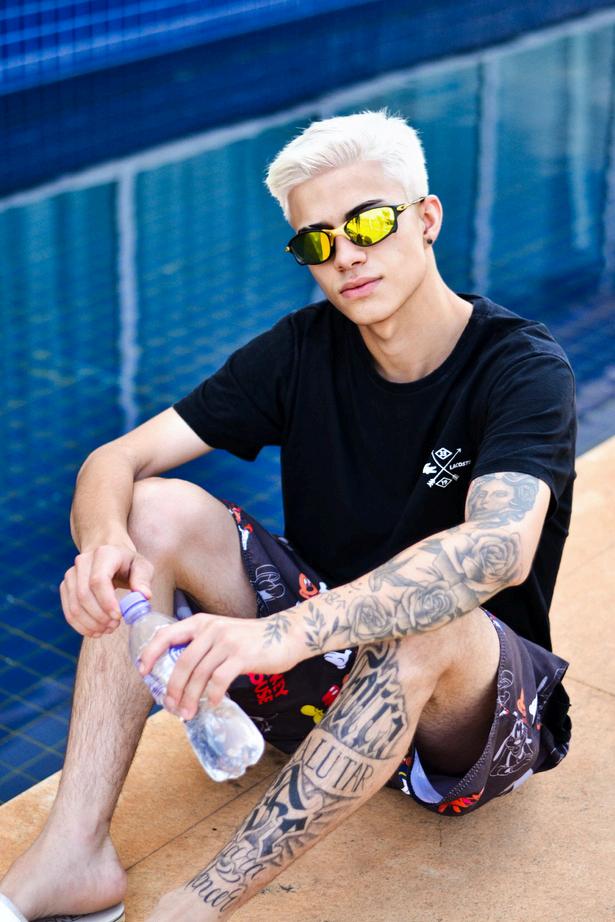



The past, the present, the future, this is what Bangkok is all about.. It’s the melange of these that makes Bangkok so appealing, hugely interesting, and somewhat disconcerting at the same time As if it will keep speeding up, and eventually explode into a billion pieces.
Most Bangkokians across all ages, from teenagers to the older folk, across most economic demographics, use mobile app technology, extensively.
From food delivery services, eCommerce sites such as ‘Lazada’, ‘Shoppe’ to booking holidays and flights, think ‘Agoda’, ‘Booking.com’ to booking taxi’s with‘Grab’
Then you have all the private individual businesses that are sending out their merch from sales on Facebook, Instagram and their own websites, and on, and on the list goes, it is enormous.

Worthy of note - Communication App’s such as ‘LINE’ are fully utilised by businesses and the general public alike, WhatsApp is also popular, but not as popular or dynamic as LINE It is advisable to download LINE before arriving, as most people exchange their LINE contact ID with one and other, rather than giving out phone numbers
So If you have never been to Bangkok, one of the first things you’ll notice on the roads as you enter the city, would be the phenomenal amount of delivery drivers going about their business on scooters and in vans. This is due to the huge amount of eCommerce being driven. By app technology as mentioned
This in turn leads to the ever increasing demand for talent to build App’s from coding to UI design thats required by so many tech-prenuers and startups
Did I mention it’s busy? Expect busy 24/7 - 365 - Boredom is a thing of the past here.
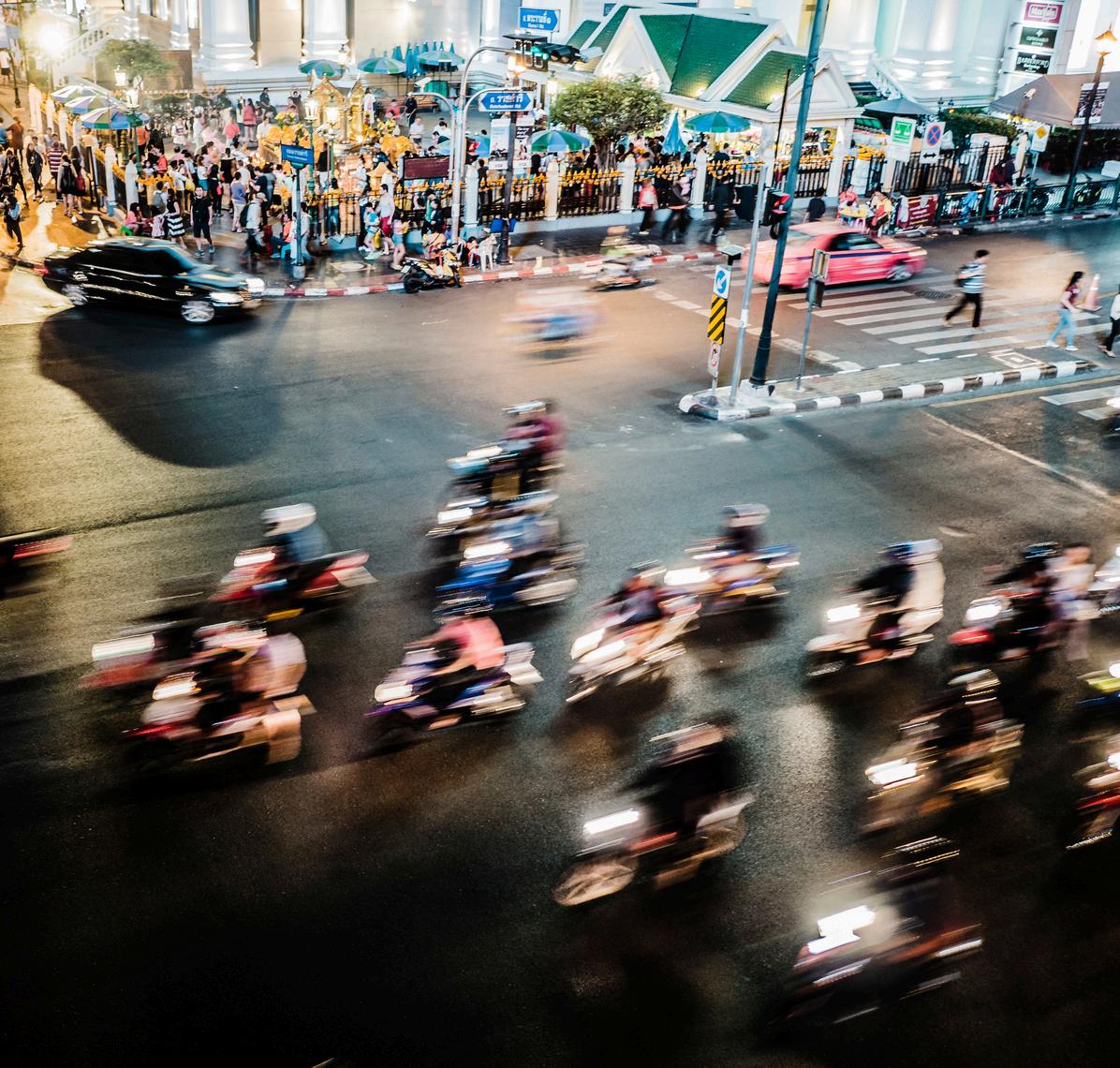



 Millennium Falcon
Millennium Falcon

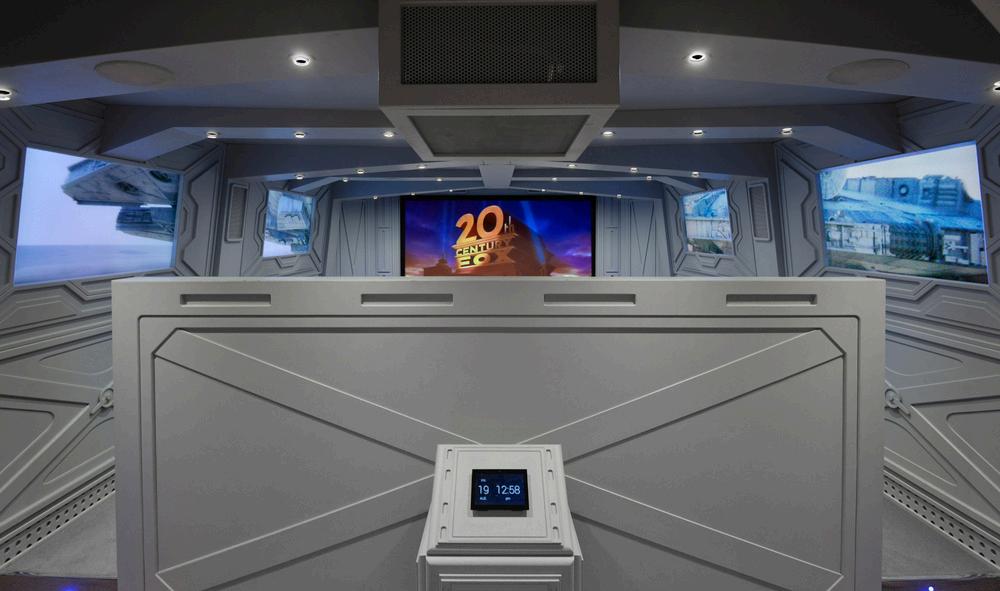
port and starboard windows with Synchronised landscapes create the inflight vibe..

Choose your display - TV or projector - Modern TVs offer up to 8K resolution, HDR, and smart features, perfect for rooms of all sizes - especially if you don’t have a designated home theatre room set-up Want a bigger picture?
A projector paired with a quality screen can recreate the cinema experience at home. Consider room size, ambiant daytime and evening lighting, viewing distance and personal preference when choosing your display They all combine to create the ultimate visual impact.
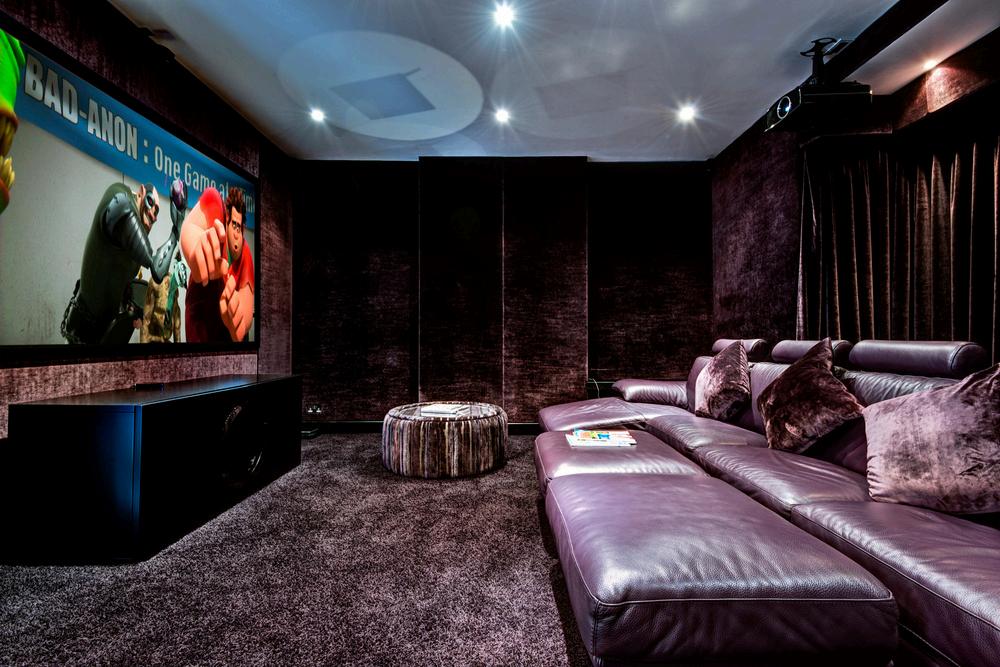
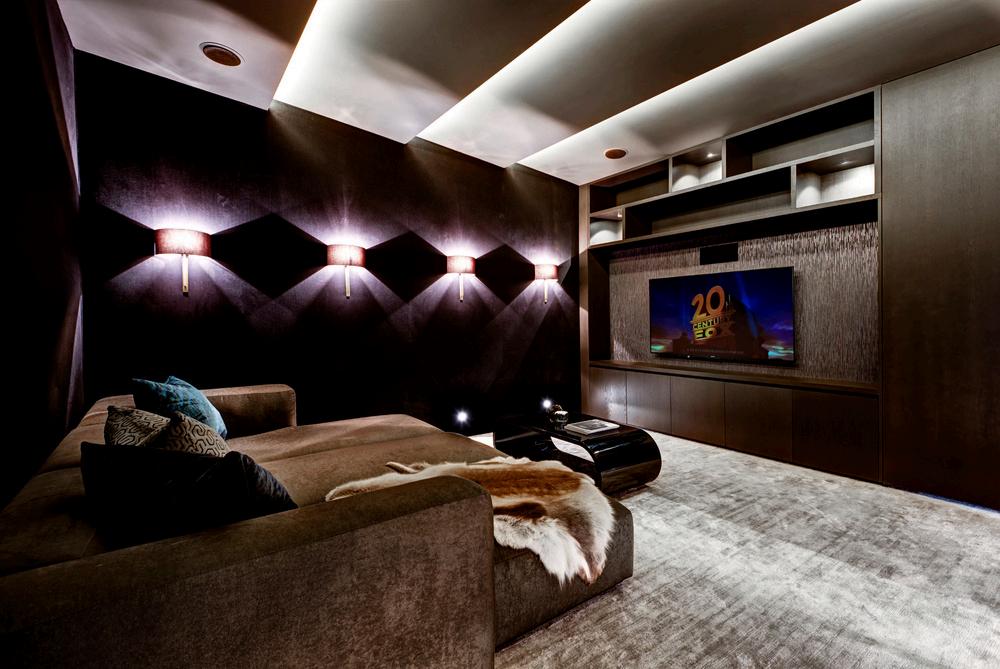
Speakers are the voice of your home theater system. If you want that cinematic experience at home, with an immersive sound that enhances every viewing experience. Then your speaker choice will determine how immersive the sound is in your room
A typical setup includes a combination of front, centre, rear, complimented by a subwoofer unit
That’s if you want the full effect of surround sound.
Depending on your space’s acoustics and personal preferences and of course budget, you might opt for a classic 51 setup or advanced systems like 71, 91, or Dolby Atmos
Sound bars also do a great job if you are planning an audio visual setup in your living room and you’re on a smaller budget
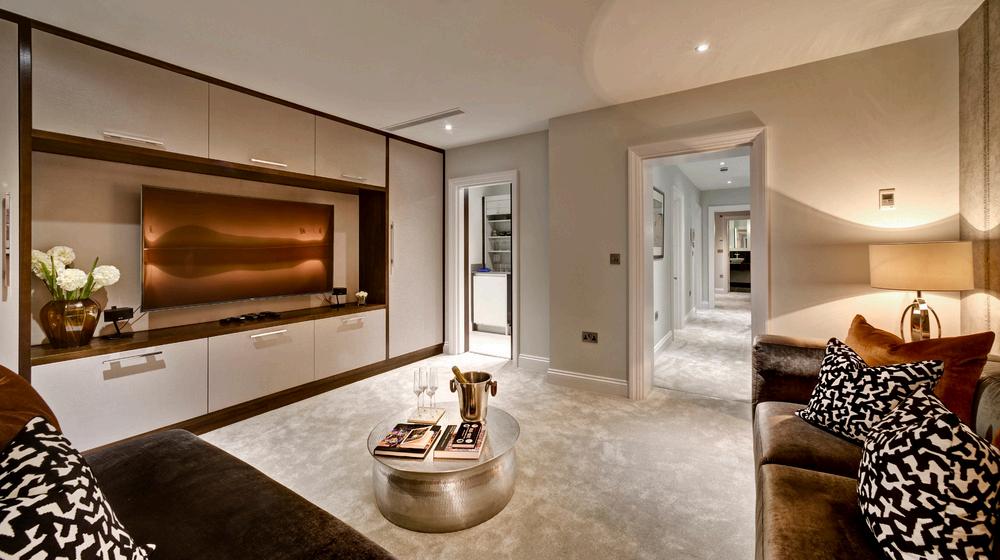

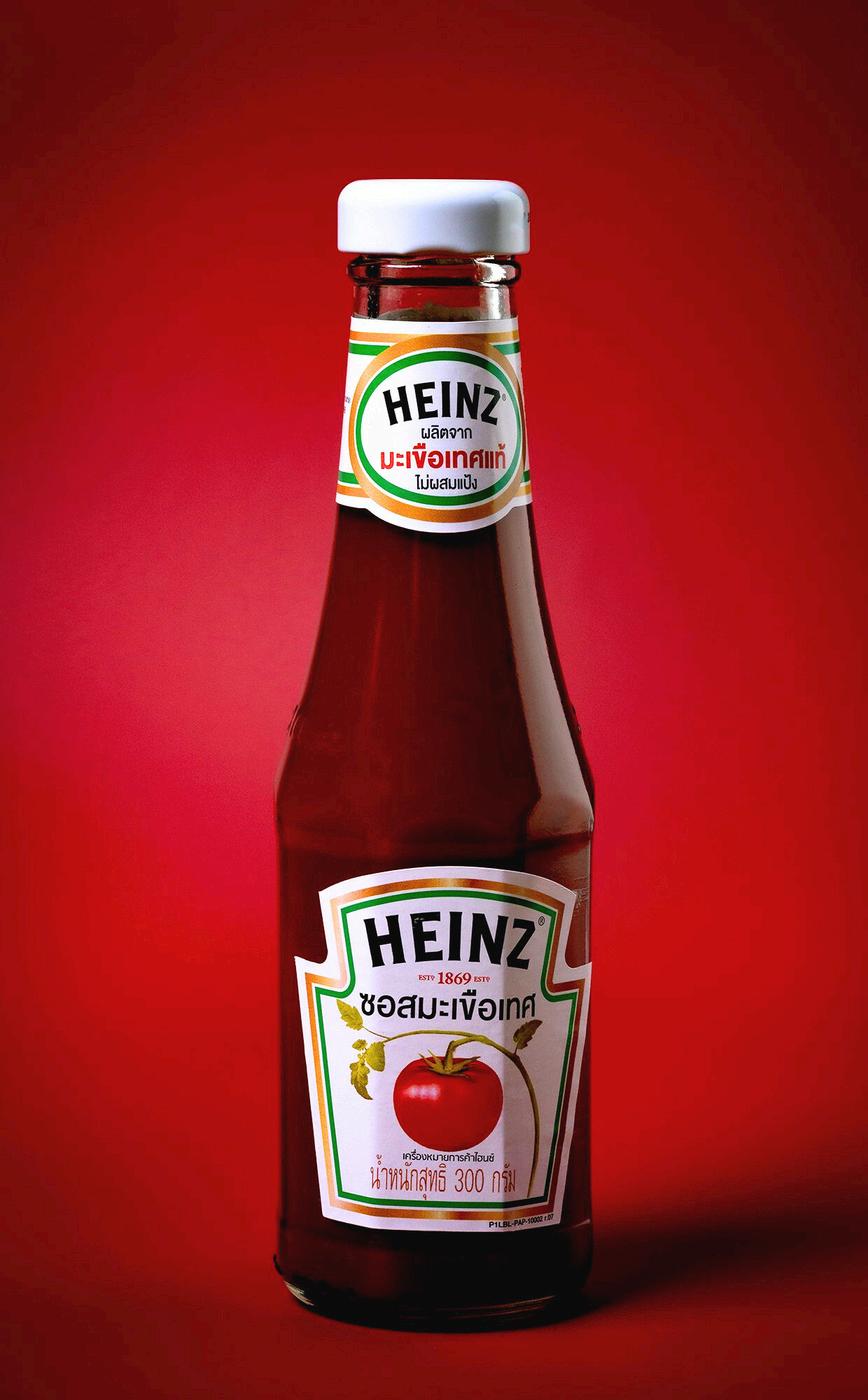









S-Metro Building (BTS Phrom Phong)
Summer Point Building (BTS Phra Khanong)
IDEO Q Chula-Samyan (MRT Samyan)
The Urban Office has been recognized as the best co-working space in Thailand by the World Business Outlook Awards 2023
www.theurbanoffice.com
Asking price
£24,950,000
Herbert Crescent, London, SW1X
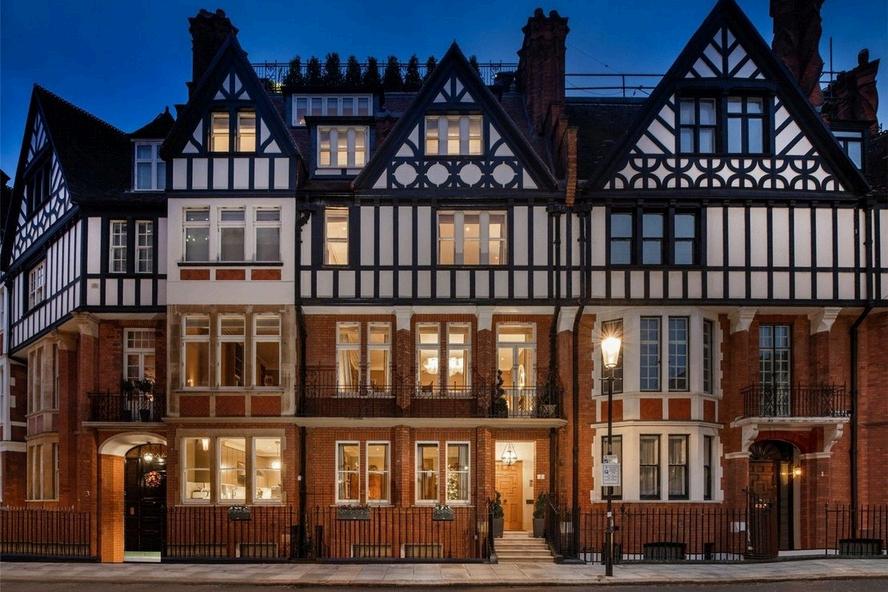
Joint Sole Agent: This outstanding late Victorian (1890s) Freehold house, providing 7535 sq ft (700 sq metres) of accommodation, which was completely rebuilt internally to the highest standard and involving façade retention and the creation of two new sub-basements, culminating in eight storeys and a roof terrace, situated on the prestigious Herbert Crescent in Knightsbridge, just behind the world famous department store, Harrods. Careful consideration has been given to elements such as the premium joinery, double glazed windows, floor finishes and stone work, ensuring a harmonious relationship between the building structure and the interior design.
This classic home has been designed for modern living and entertaining and reflects quality and luxury throughout, The property benefits from six/seven bedrooms: a wine cellar; gym; sauna; and a spectacular, highly-engineered, glazed, circular glass internal passenger lift, running through the central core of the stunning curved stone staircase, giving access to all floors and ascending to an opulent roof garden terrace This stunning, unique Art Deco glass lift and shaft has been designed as a unique feature to enhance maximum light and space. The house has been interior designed and includes the highest quality marble tiling, solid engineered wood flooring and luxurious carpets in the bedrooms The house has full digital home automation, Lutron lighting, fitted air conditioning and underfloor heating systems, as well as specialist, bespoke joinery. There is a beautiful custom-made kitchen off the dining room, which is fitted with two Wolf ovens, two six minute dishwashers and a separate pantry with two fridge/freezers which would impress the most discerning cook There is a rare, second entrance to the rear of the house where staff can enter and guests can arrive and leave discreetly. The accommodation comprises: Sub-basement: dressing room; en-suite shower room; plant room and store room. Basement: sauna; gym; shower room; utility room; wine cellar; and two plant rooms Lower Ground Floor: bedroom/media room; staff bedroom; two en-suite bathrooms; store room; and staff kitchen Ground Floor: kitchen; dining room; reception hall; pantry; and guest cloakroom. First Floor: reception room leading to a balcony; bar area; and guest cloakroom. Second Floor: principal bedroom with dressing room; and two en-suite bathrooms Third Floor; two bedrooms, both with ensuite bathrooms and dressing rooms Fourth Floor: bedroom with ensuite bathroom; dressing room; study/bedroom seven. Roof Level: Accessed via a most impressive circular, retractable glass spiral roof which opens at the touch of a button onto a 32 ft / 98 sq m private roof terrace, with fabulous, far-reaching views over the London skyline. Herbert Crescent is located within 0.1 miles of the world famous department store, Harrods, and the impressive shops of Sloane Street in the heart of Knightsbridge Hyde Park is also within 01 miles of the property, along with excellent schools and transport links; Knightsbridge and Hyde Park Underground Station (Piccadilly Line). Communal Gardens: The current owners have access to two local garden squares: Hans Place Gardens and Cadogan Place Gardens. Please beware this is not an automatic right, but is granted on an individual basis * Council Tax Band - HKensington & Chelsea * EPC rating C *
020 7604 4611
18, Blenheim Terrace, St Johns Wood, London, NW8 0EB
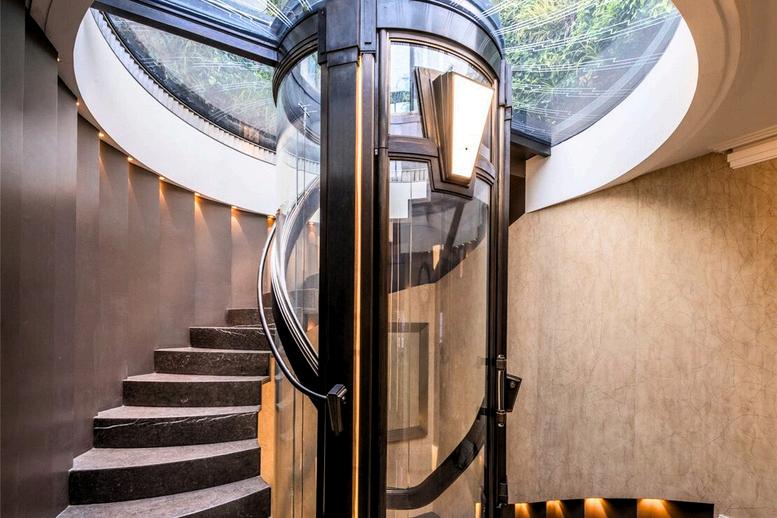

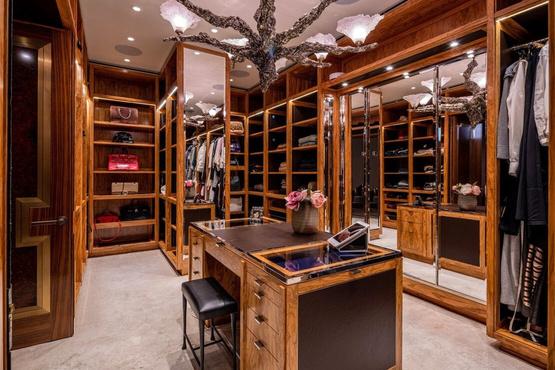

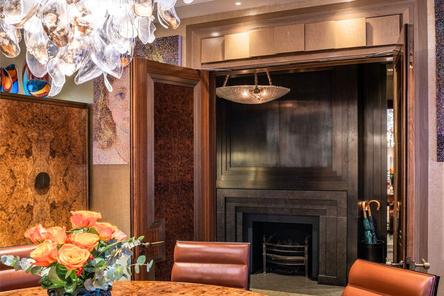
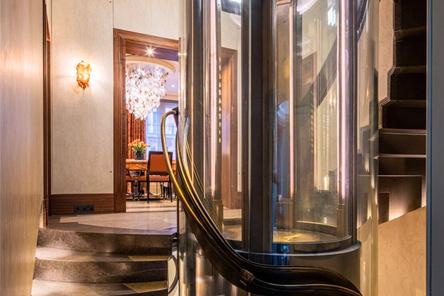
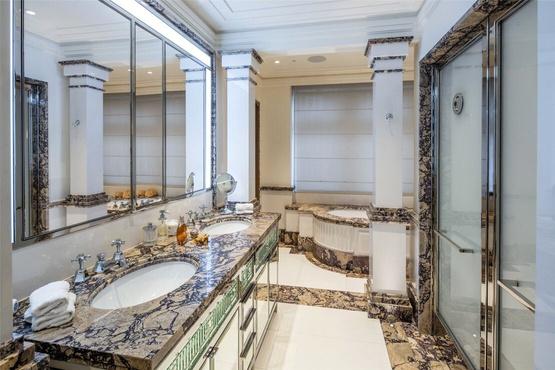
Asking price £24,950,000
Herbert Crescent, London, SW1X



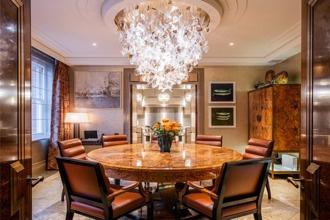


Location:
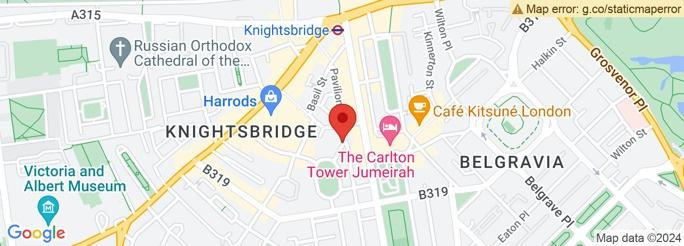




YOUR BRAND , OUR UNIVERSE .
ADVERTISING THAT’S LIGHTYEARS AHEAD

SHAPE YOUR TOMORROW ONE CREATE TODAY
WE SPECIALISE IN CONTENT CREATION, & MULTIPLE LANGUAGE CONCEPTS